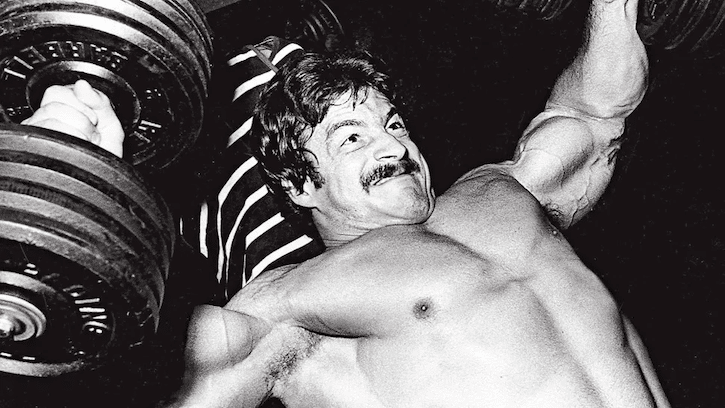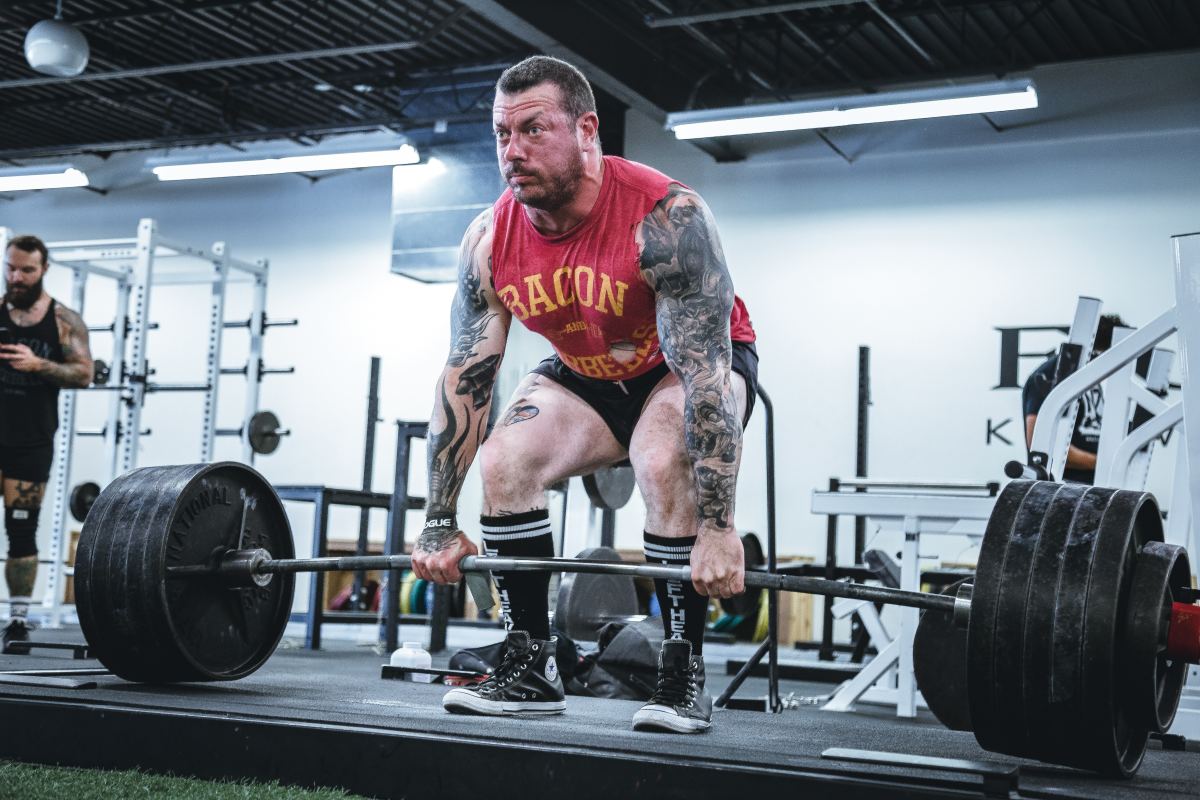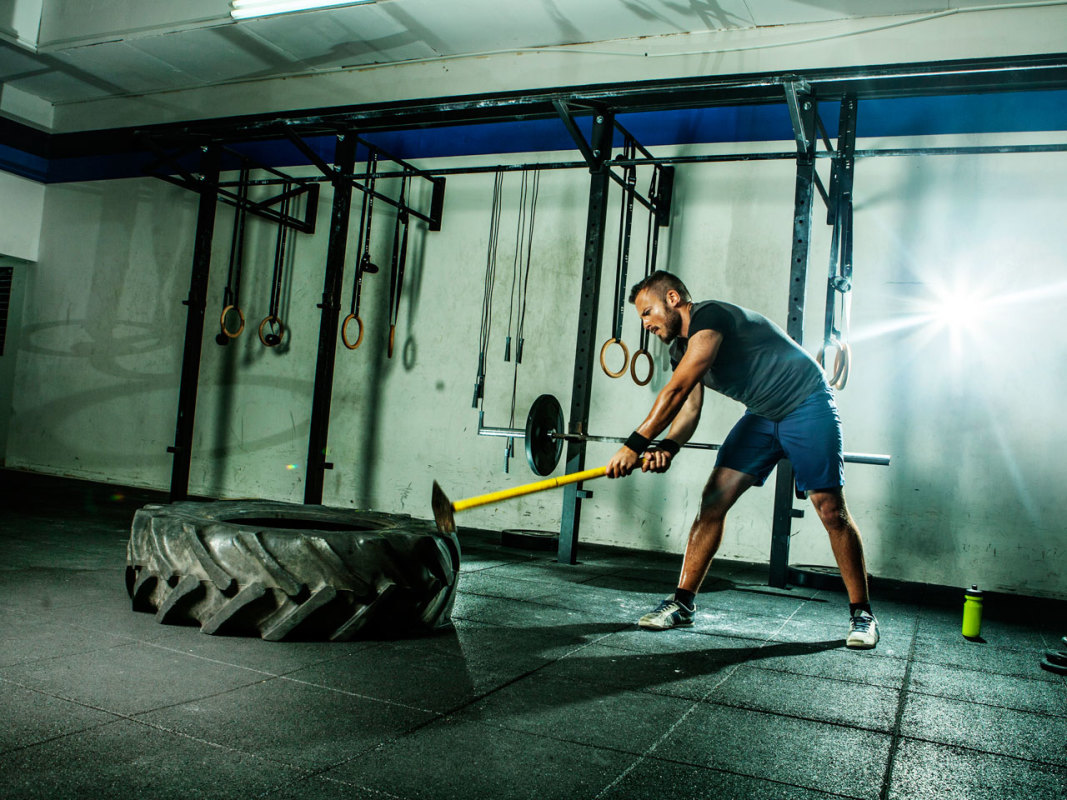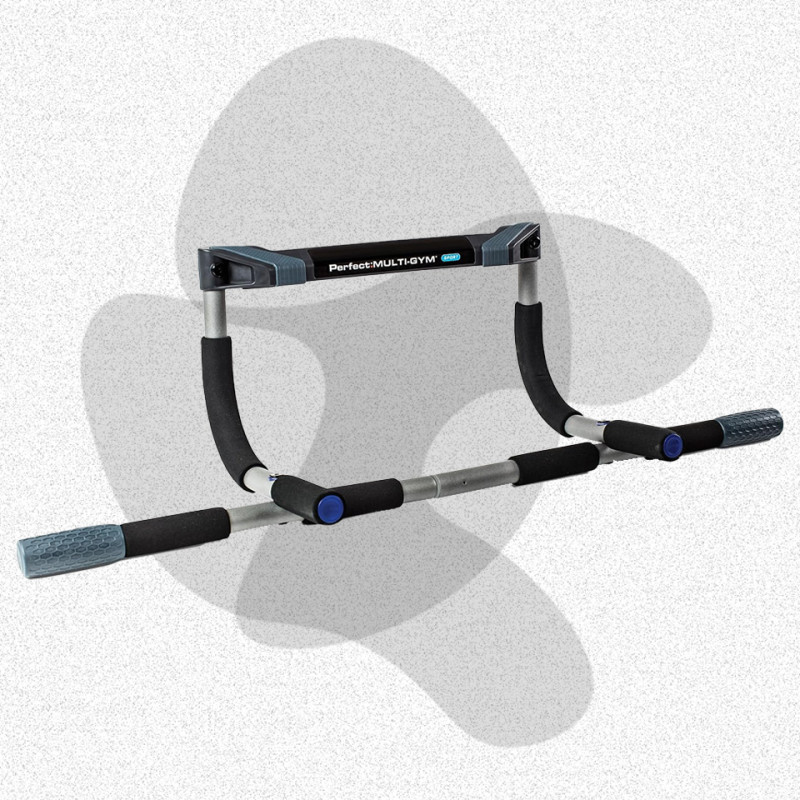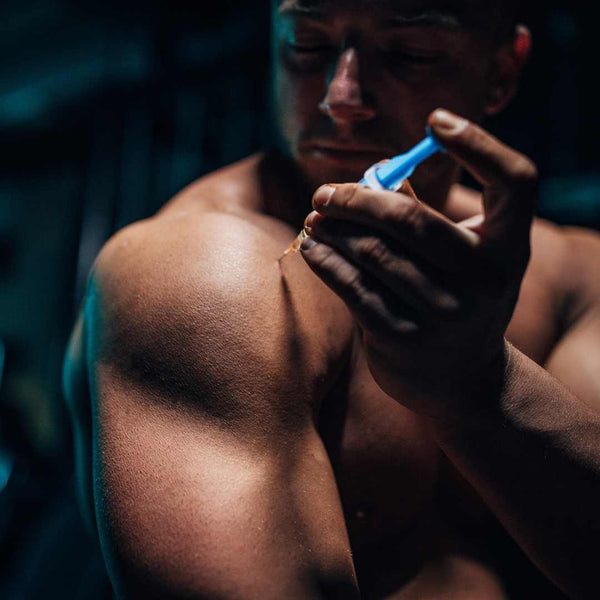If you want to build the muscles in your arm well, you’ll need a multi-faceted approach to targeting the triceps, biceps, forearms, and shoulders. The best arm exercises for strength and size gains include a combination of compound and targeted assistance exercises–in addition to incorporating the right amount of reps and sets.
We rounded up the 50 best arm exercises that challenge the smaller, oft-overlooked muscles as well as the main movers.
Related: 50 Best Chest Exercises of 2023
Best Arm Exercises With Step-by-Step Instructions
1. Hammer Curl
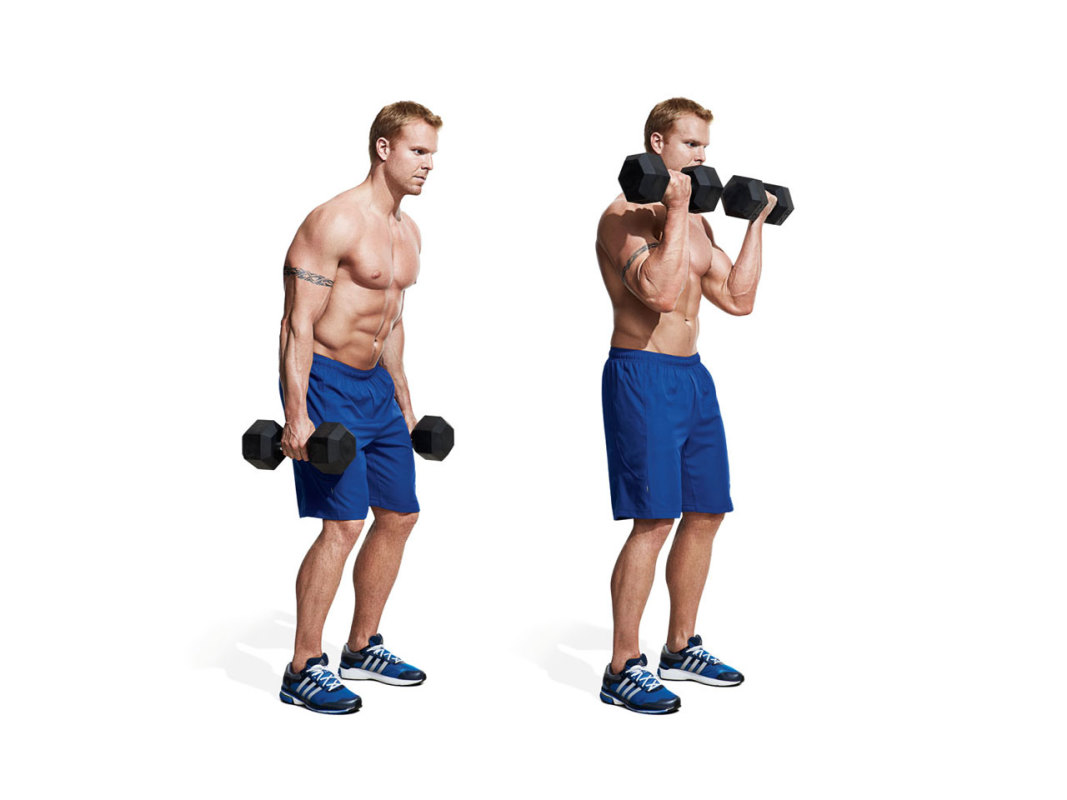
How to do it:
- Hold a dumbbell in each hand with palms facing your sides and arms extended straight down.
- Keeping your upper arms against your sides, curl both weights at the same time, minimizing momentum used during the curl.
2. Dip
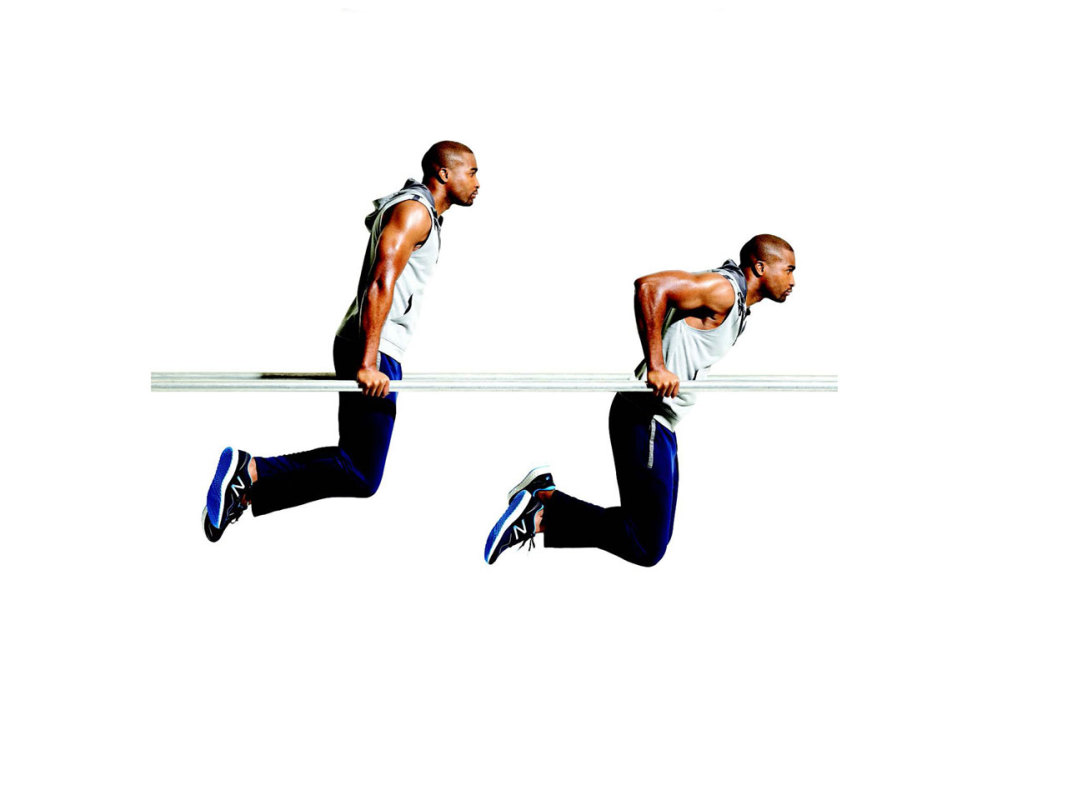
How to do it:
- Use dip bars, if available, or place your palms on a bench, chair, or on the floor as you extend your legs in front of you.
- Lower your body until your upper arms are parallel to the floor, but no lower.
- Extend your elbows to come up.
3. Close-grip Curl
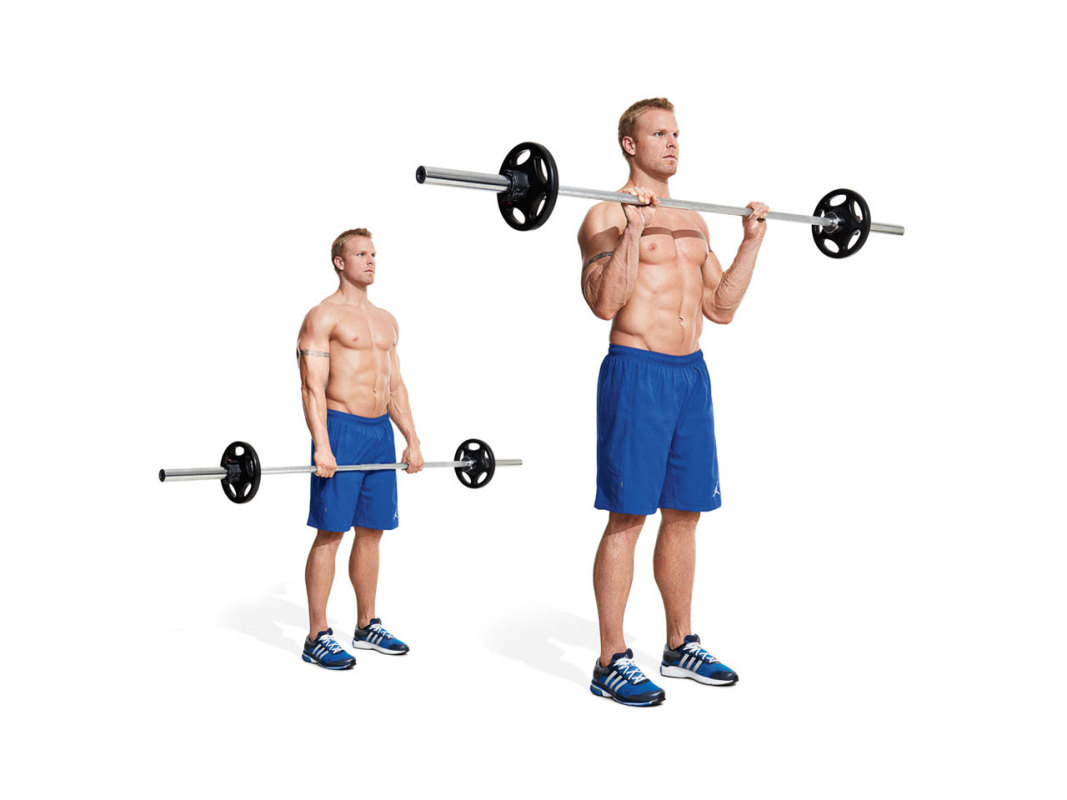
How to do it:
- Curl with your hands inside shoulder width, in the middle of the bar.
4. Chinup
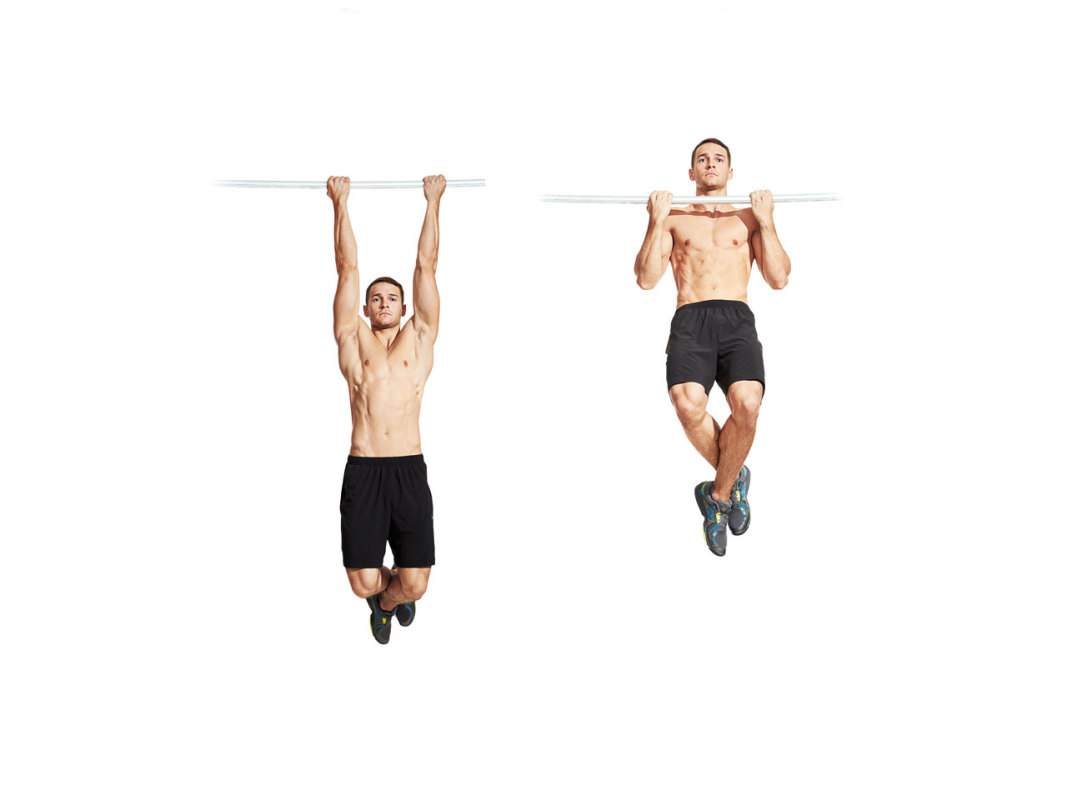
How to do it:
- Grab the bar at (or slightly inside) shoulder width, with a supinated grip.
- While keeping your core tight, pull yourself up until your chin is over the bar.
- Try not to use momentum to get your chin over the bar.
5. Suspension Trainer Triceps Extension
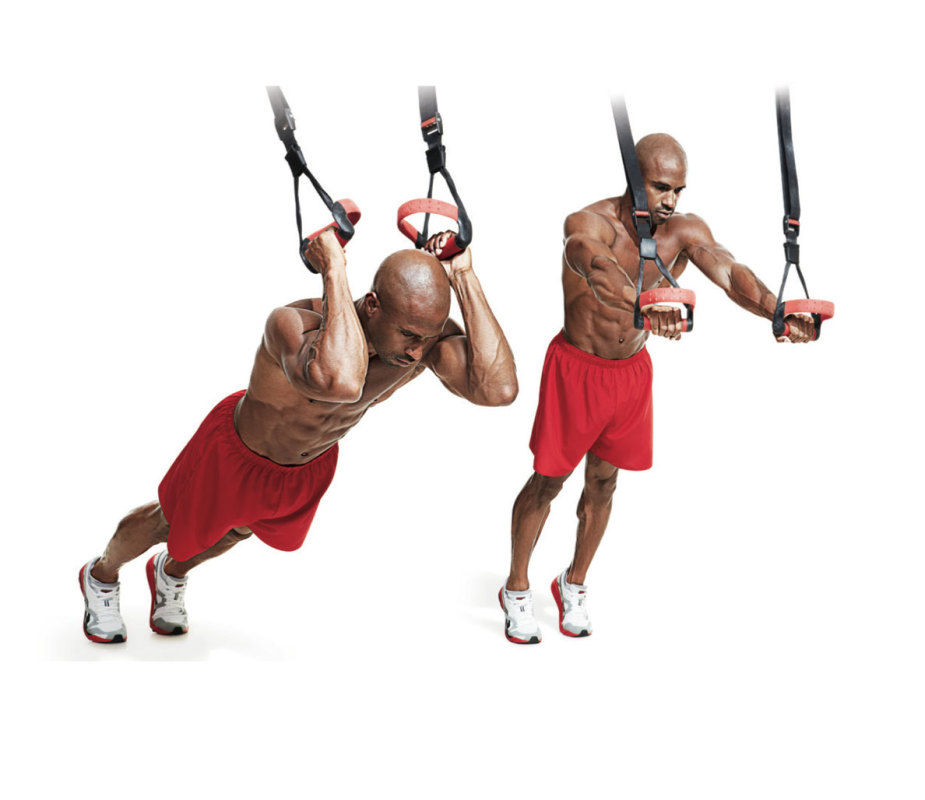
How to do it:
- Lengthen the straps and stand underneath the suspension trainer’s anchor point.
- Lean your weight forward and bend your elbows so you feel a stretch in your triceps.
- Your palms should face each other behind your head.
- Keeping your body straight and abs braced, extend elbows, rotating palms so they face down while extended.
6. Diamond Pushup
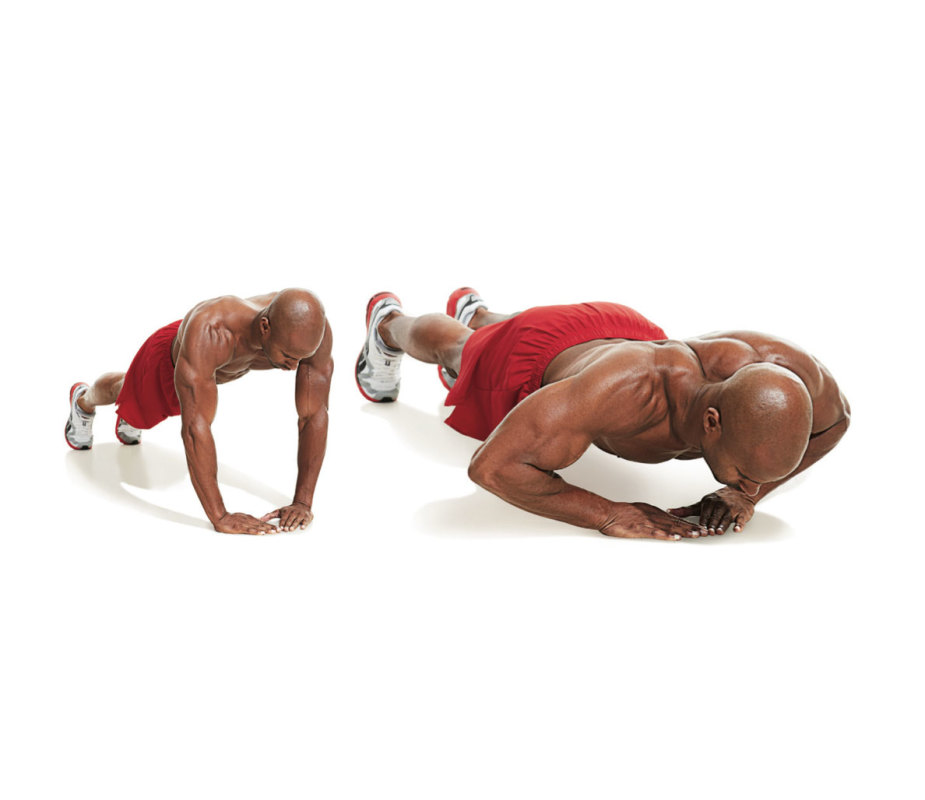
How to do it:
- Get into a pushup position but place your hands close together so your thumbs and index fingers touch.
- Keeping your body in a straight line with abs braced, lower your torso until your chest is just above the floor, then press back up.
7. Neutral-grip Triceps Extension
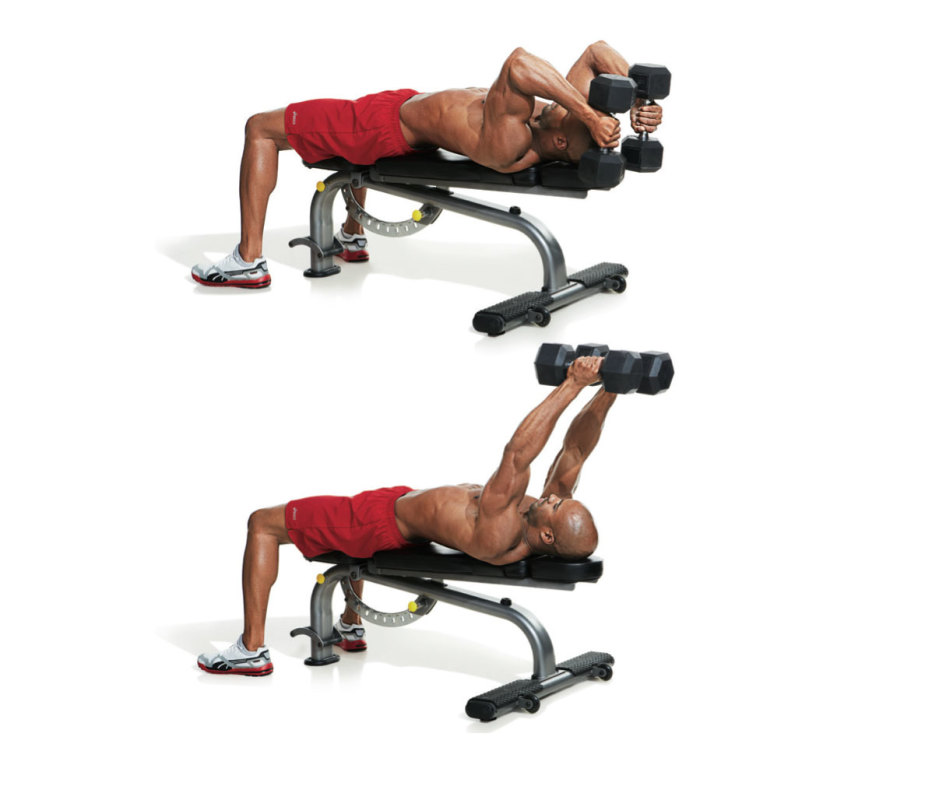
How to do it:
- Lie back on a bench or the floor holding a dumbbell in each hand with palms facing each other.
- Press the weights over your chest, then bend your elbows to lower the weights toward your face until you feel a stretch in your triceps.
- Extend your elbows.
- Keep your elbows facing the ceiling the entire set.
8. Poundstone Curl
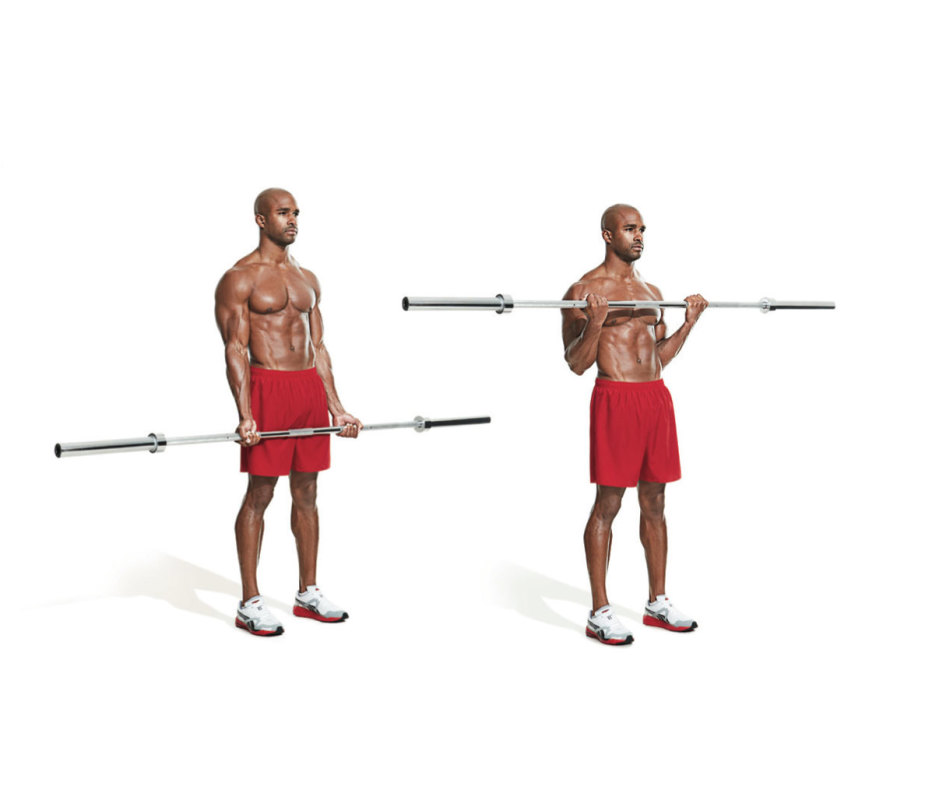
How to do it:
- Grasp the barbell at shoulder width.
- Keeping your upper arms at your sides, curl the bar.
9. Suspension Trainer Rotational Inverted Row
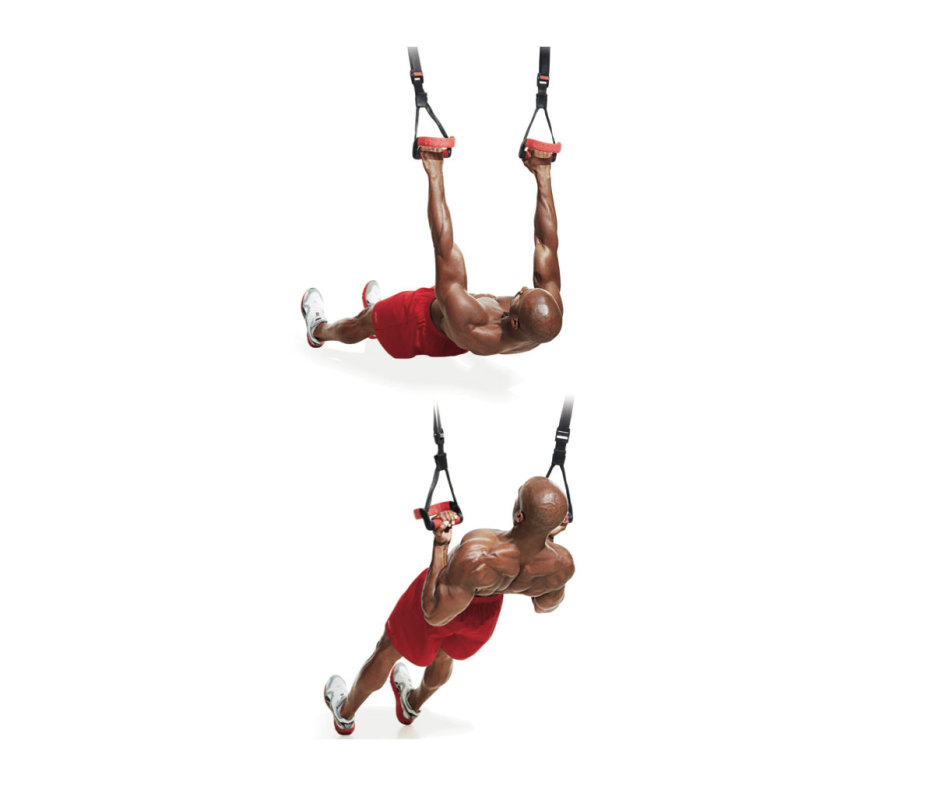
How to do it:
- Hold the handles and lean back with arms extended so that your body is supported by the suspension trainer and only your feet are on the floor.
- Brace your core and hold your body in a straight line. (The lower you set the handles, the harder the exercise; you can elevate your feet to make it even more difficult.)
- Start with your palms facing your feet, and as you row your body up, twist your wrists out so your palms face up in the top position.
10. Suspension Trainer Biceps Curl
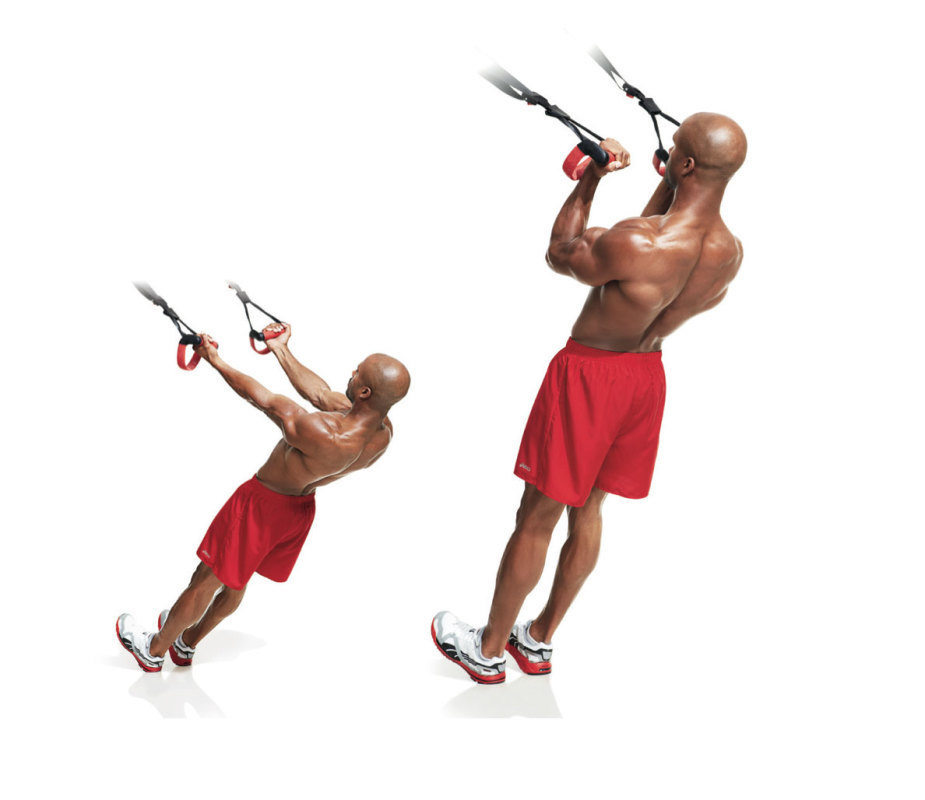
How to do it:
- Face the trainer’s attachment point and grasp the handles with palms facing up.
- Lean back with your abs braced, body straight, and arms extended in front of you.
- Curl your body up to the handles.
11. Close-grip Pushup
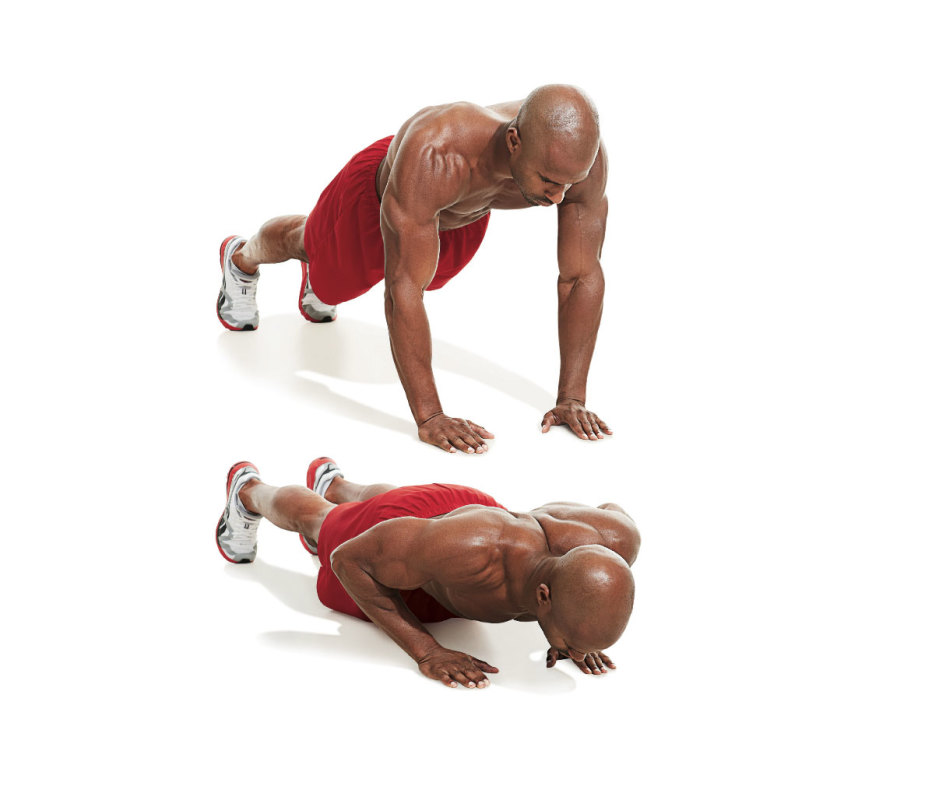
How to do it:
- Place your hands inside shoulder width and lower your body until your chest is about an inch above the floor.
- To increase the difficulty, elevate your feet on a bench or box.
12. Behind-the-Back Cable Curl
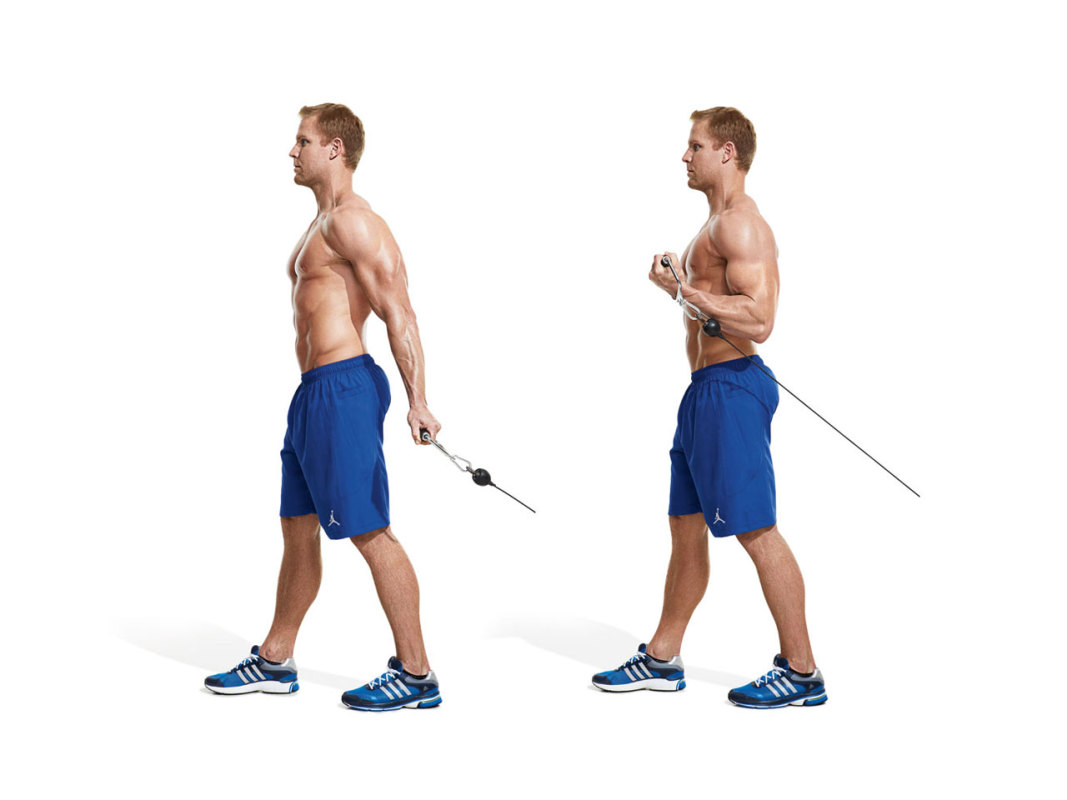
How to do it:
- Attach a D-handle to the low pulley of a cable machine, grasp the handle in your left hand, and step forward (away from the machine) until there’s tension on the cable and your arm is drawn slightly behind your body.
- Stagger your feet so your right leg is in front.
- Curl the handle but do not allow your elbow to point forward.
13. EZ-Bar Preacher Curl
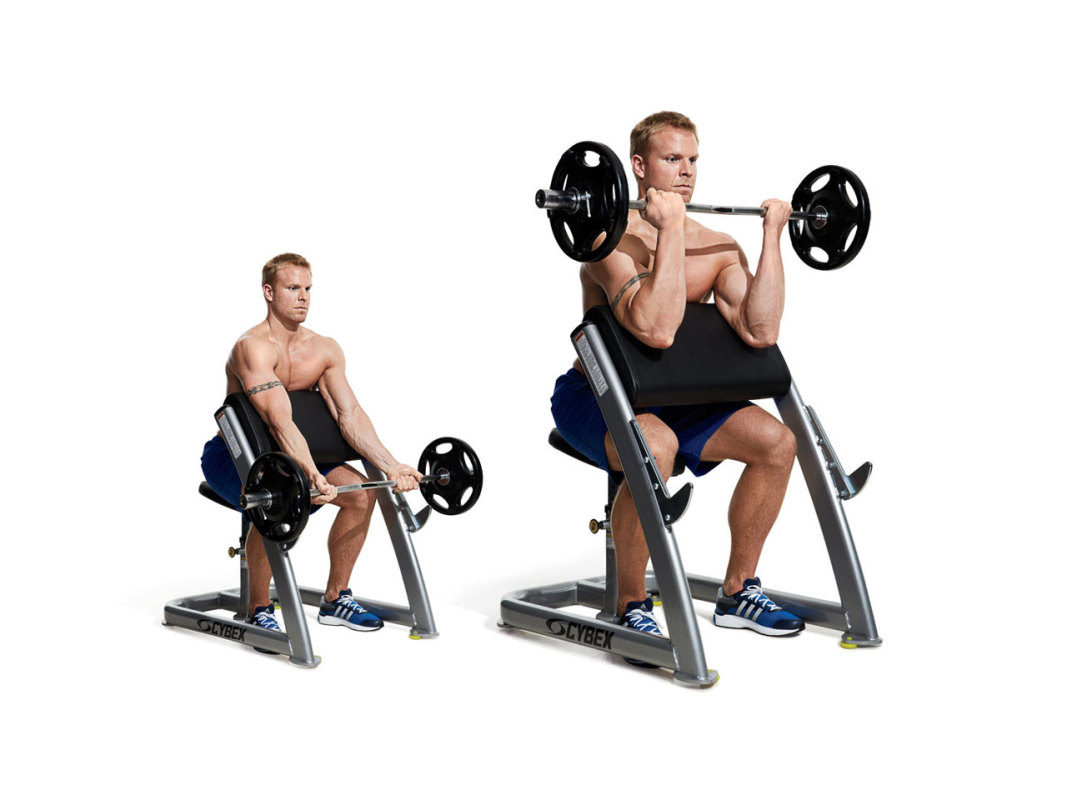
How to do it:
- Sit at a preacher bench and adjust the height so that your armpits touch the top of the bench.
- Grasp an EZ-curl bar at shoulder width with arms extended (but allow a slight bend at the elbows).
- Curl the bar, keeping the backs of your arms against the bench.
- Take three seconds to lower the bar back down.
14. Reverse Curl
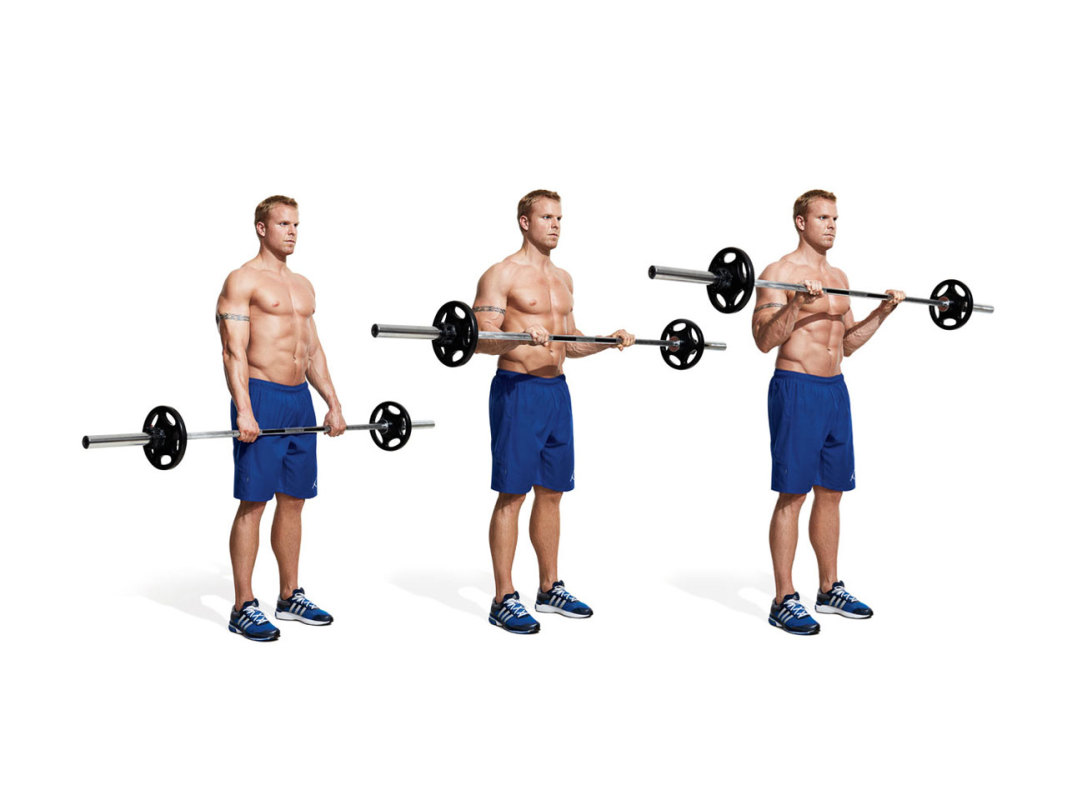
How to do it:
- Grasp the bar overhand at whatever width is comfortable.
- Keeping your upper arms against your sides, curl the bar.
15. Wide-grip Curl
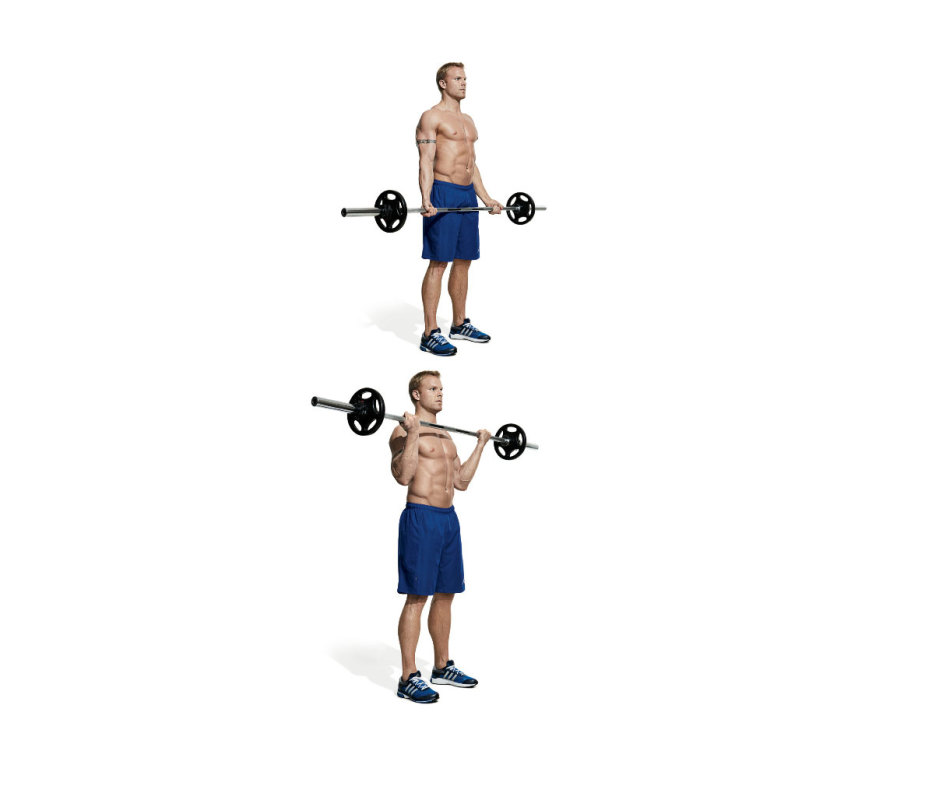
How to do it:
- Grasp the bar with hands wider than shoulder width—if you’re using an Olympic bar, your pinkies should be on the outside knurling.
- Perform curls.
16. Overhead Press
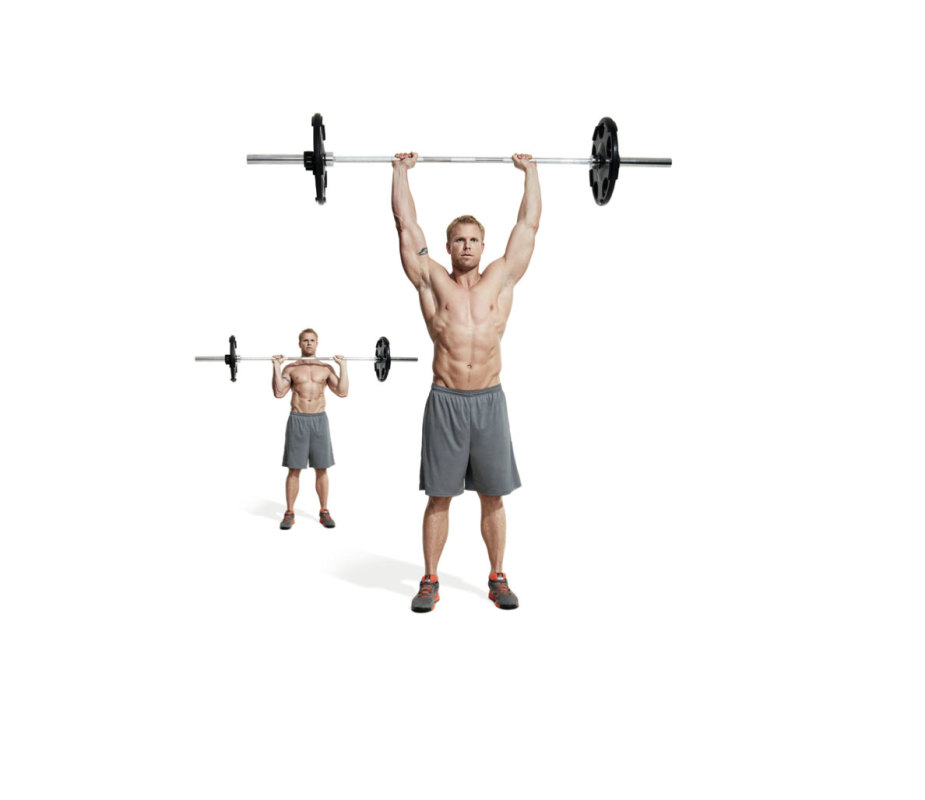
How to do it:
- Set the bar up in a squat rack or cage, and grasp it just outside shoulder width.
- Take the bar off the rack and hold it at shoulder level with your forearms vertical. Squeeze the bar and brace your abs.
- Press the bar overhead, pushing your head forward and shrugging your traps at the top of the movement.
17. Pullover/Triceps Extension
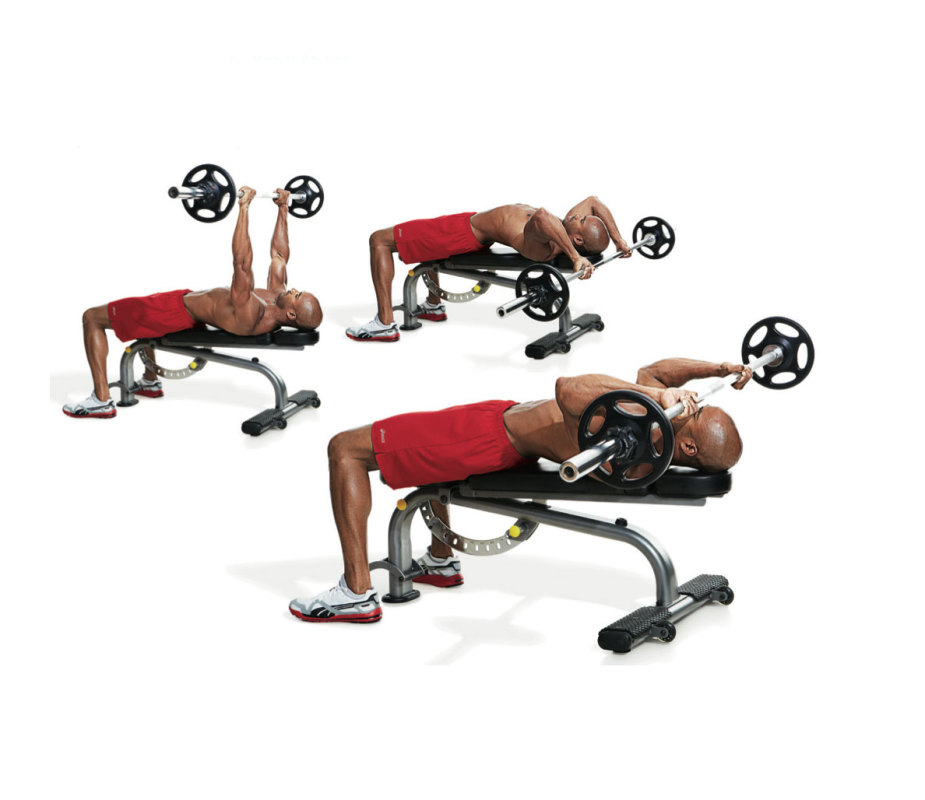
How to do it:
- Hold the bar with an overhand, shoulder-width grip while lying on a flat bench.
- Press the bar toward the ceiling and then reach it back over your head while bending your elbows until you feel a stretch in your lats.
- Then pull the bar back over your chest and extend your elbows. That’s one rep.
18. Conventional Curl
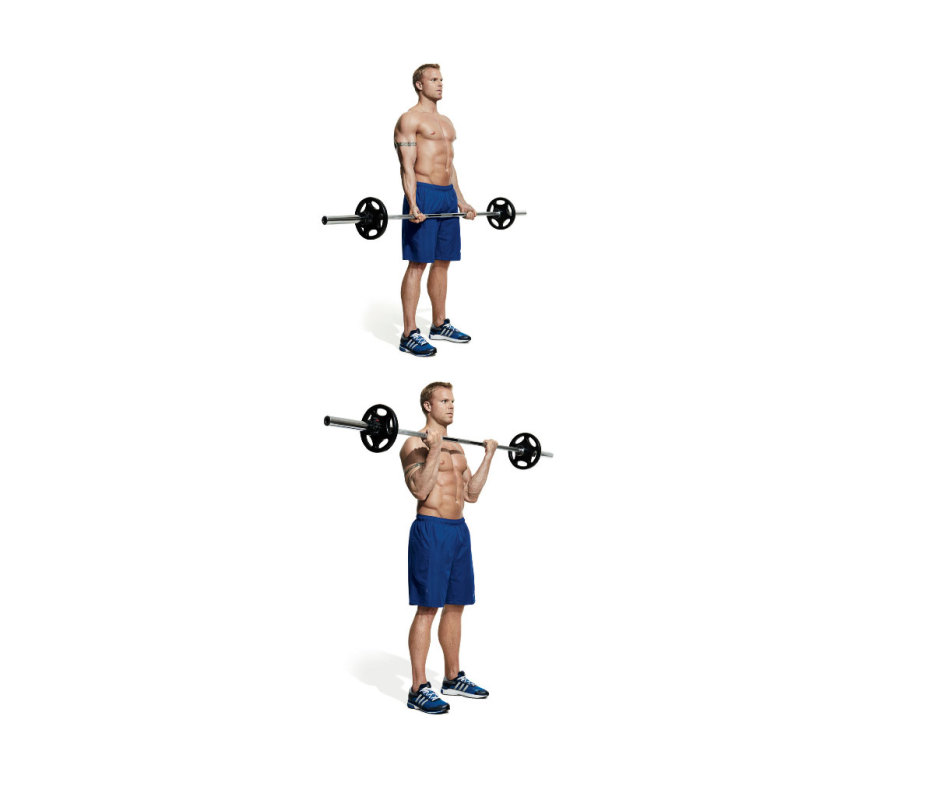
How to do it:
- Grasp bar with a closed supinated grip at slightly wider than shoulder width with feet shoulder-width apart.
- The bar should be in front of thighs with elbows extended down.
- Flex elbows to move the bar toward shoulders.
- Keep upper arms stationary and knees slightly bent.
- When the bar is close to shoulders, let elbows move back to the starting position.
19. Triceps Pushdown
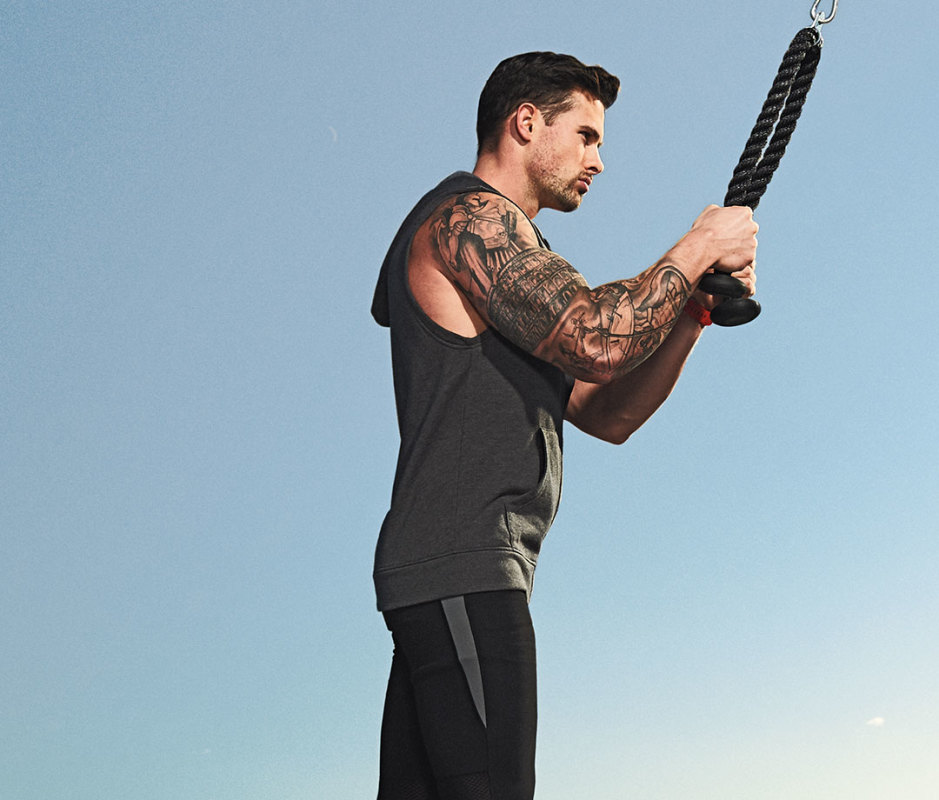
How to do it:
- Attach a rope handle to the top pulley of a cable station and hold an end in each hand with elbows flexed.
- Allow your elbows to drift forward a bit as you extend them and then let them drift backward as you lower the weight.
20. Decline Triceps Extension
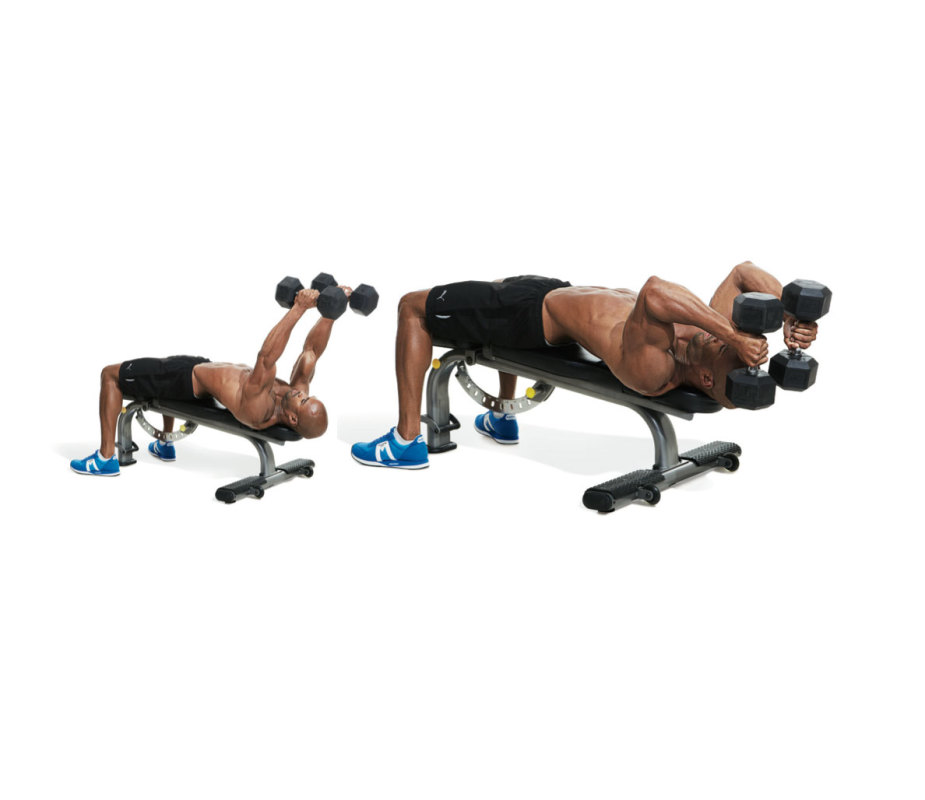
How to do it:
- Set an adjustable bench to a slight decline (around 30 degrees) and lie on it with a dumbbell in each hand.
- Hold the weights over your chest, palms facing each other.
- Bend your elbows and lower the weights to the sides of your head.
- Choose a weight you can do 12 reps with on the first set, and use it for every set.
21. Close-grip Bench Press
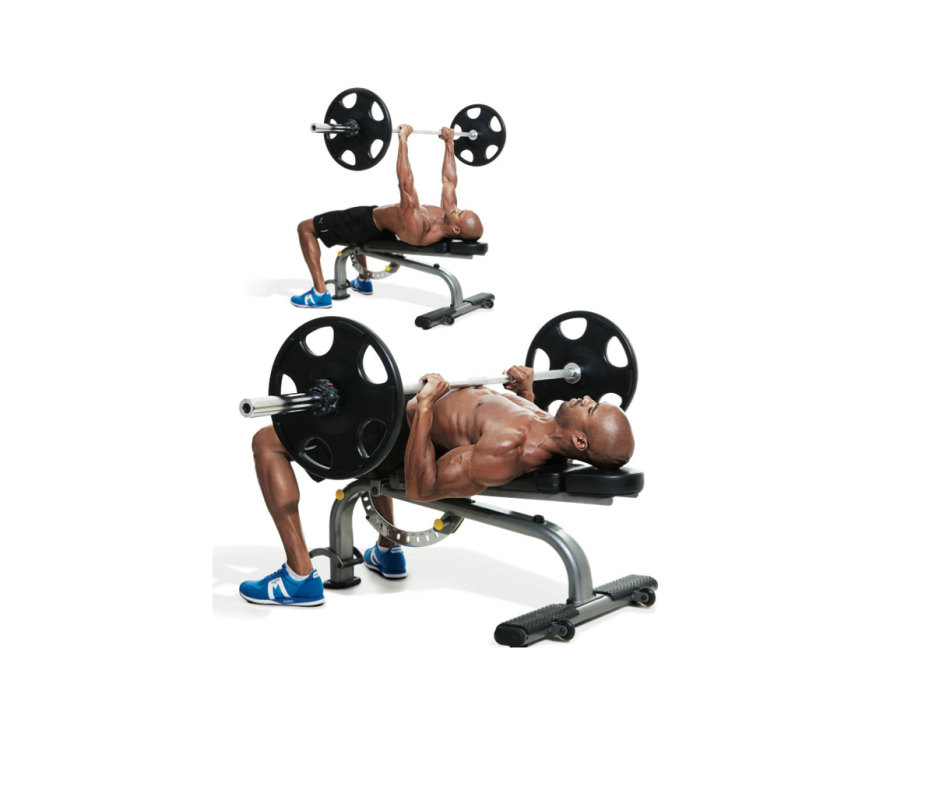
How to do it:
- Grasp the bar with your index fingers on the inside edge of the knurling (the rough part of the bar).
- Arch your back so there’s space between your lower back and the bench.
- Pull the bar off the rack and lower it to your sternum, tucking your elbows about 45 degrees to your sides.
- When the bar touches your body, drive your feet hard into the floor, then press the bar back up.
- On your last set, use half the weight and perform as many reps as possible.
22. Lying Triceps Extension
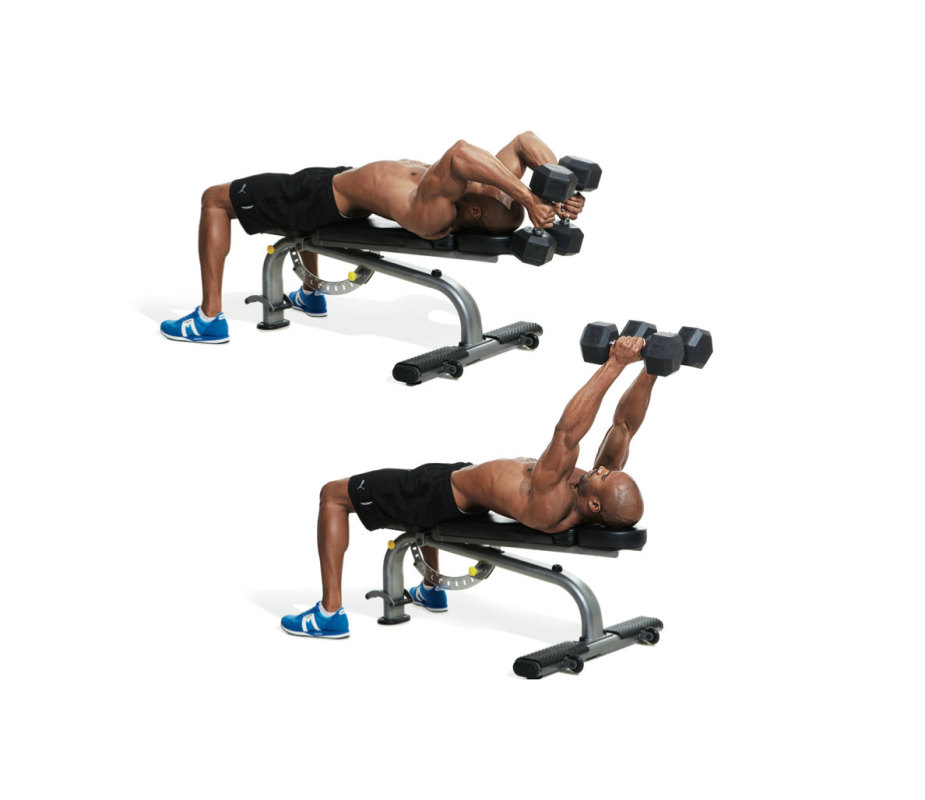
How to do it:
- From the end position of your last rep of the neutral-grip press, allow your arms to drift back until the weights are over your face.
- Keeping your upper arms at that angle, bend your elbows and lower the weights behind your head.
- Extend your elbows, keeping the same angle with your upper arms.
23. Face Pull
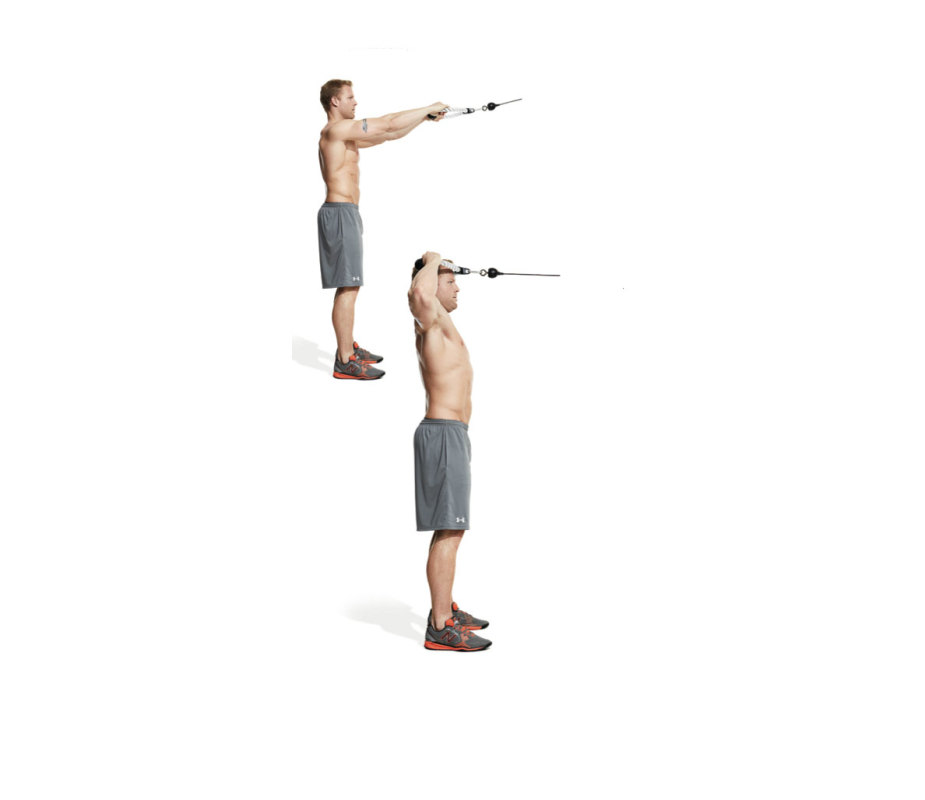
How to do it:
- Attach a rope handle to the top pulley of a cable station.
- Grasp an end in each hand with palms facing each other.
- Step back to place tension on the cable.
- Pull the handles to your forehead so your palms face your ears and your upper back is fully contracted.
24. Underhand Kickback
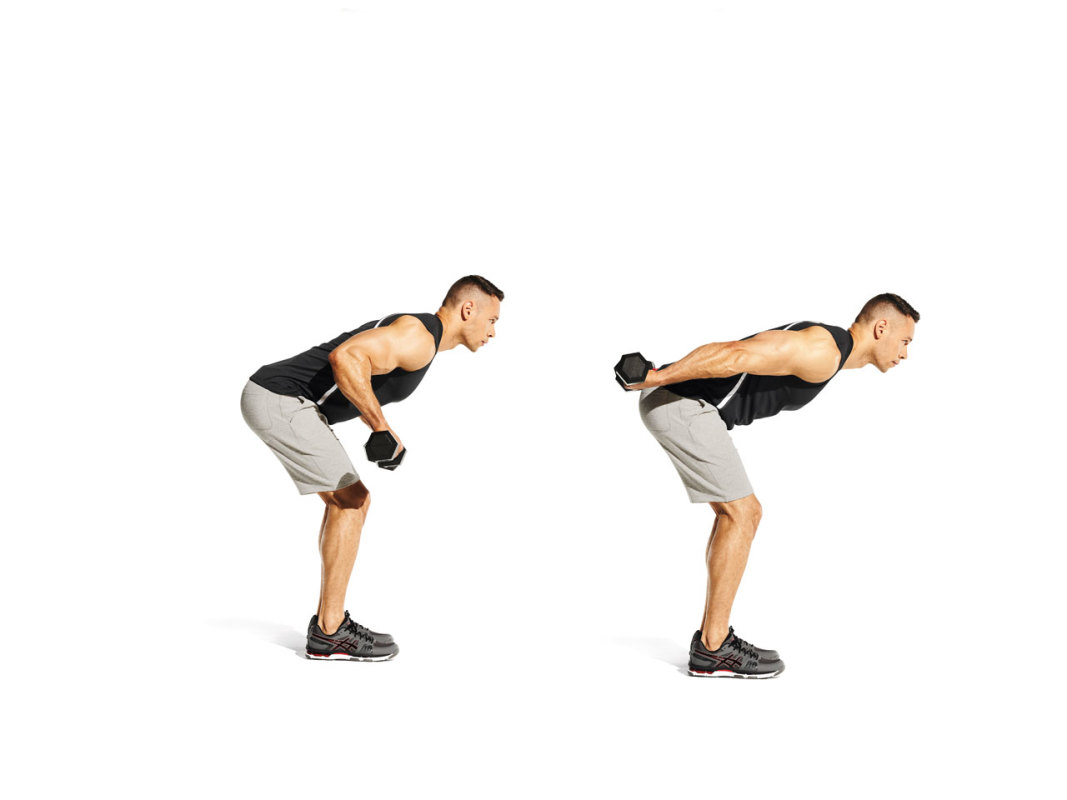
How to do it:
- Stand holding a dumbbell in each hand and bend your hips back, lowering your torso until it’s almost parallel to the floor.
- Turn your palms to face in front of you and, keeping your upper arms against your sides, extend your elbows until your arms are parallel to your torso.
25. Hips-off One-arm Dumbbell Press
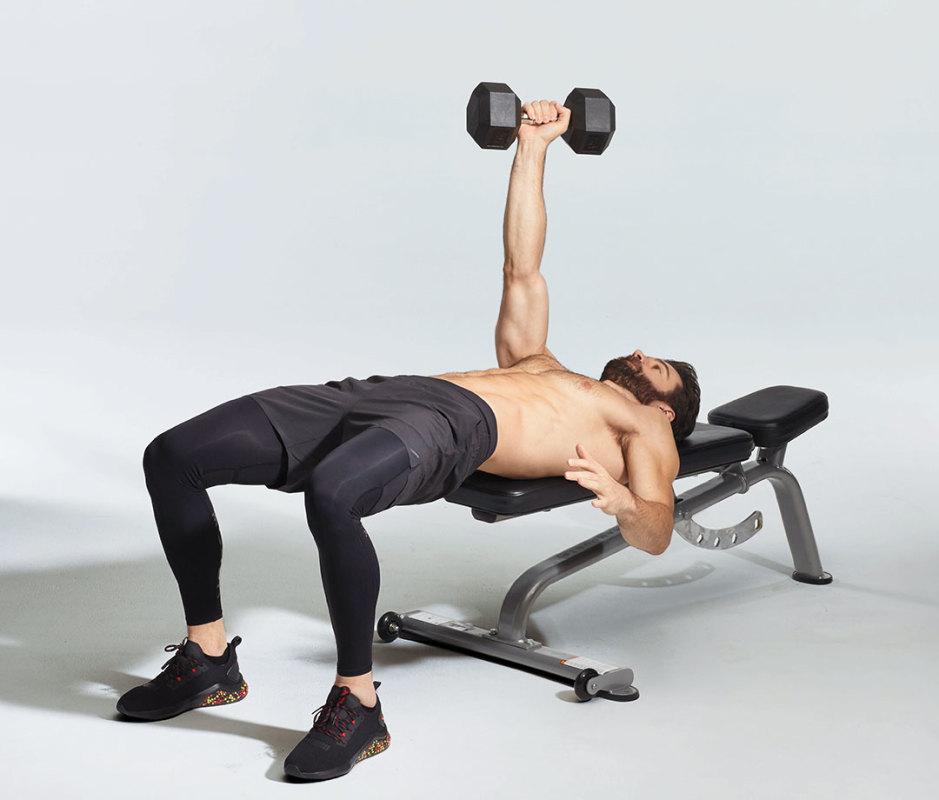
How to do it:
- Lie with shoulder blades on bench, feet on floor, knees over feet, a 35-pound dumbbell in right hand.
- Lift hips to start, and press weight over chest, palm facing in, until arm is fully extended, then lower for one rep.
- Complete all reps on the right side, then switch sides.
26. High Pull
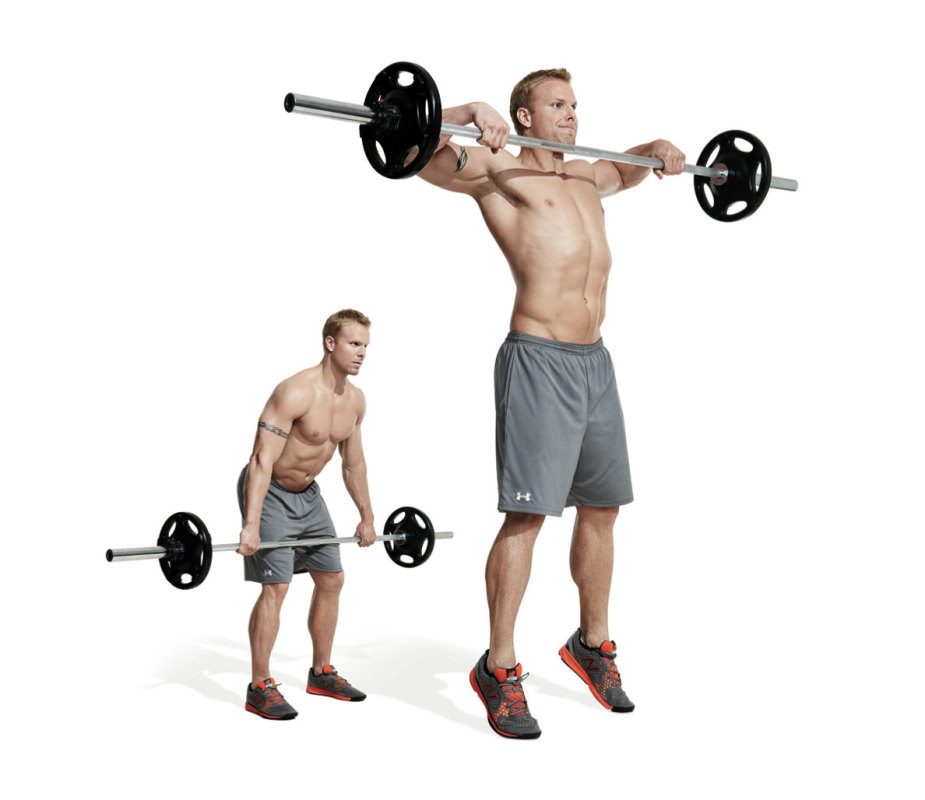
How to do it:
- Grasp the bar with hands about double shoulder width and hold it in front of your thighs.
- Bend your knees and hips so the bar hangs just above your knees.
- Explosively extend hips as if jumping and pull the bar up to shoulder level with elbows wide apart, as in an upright row.
27. Band Lateral Raise
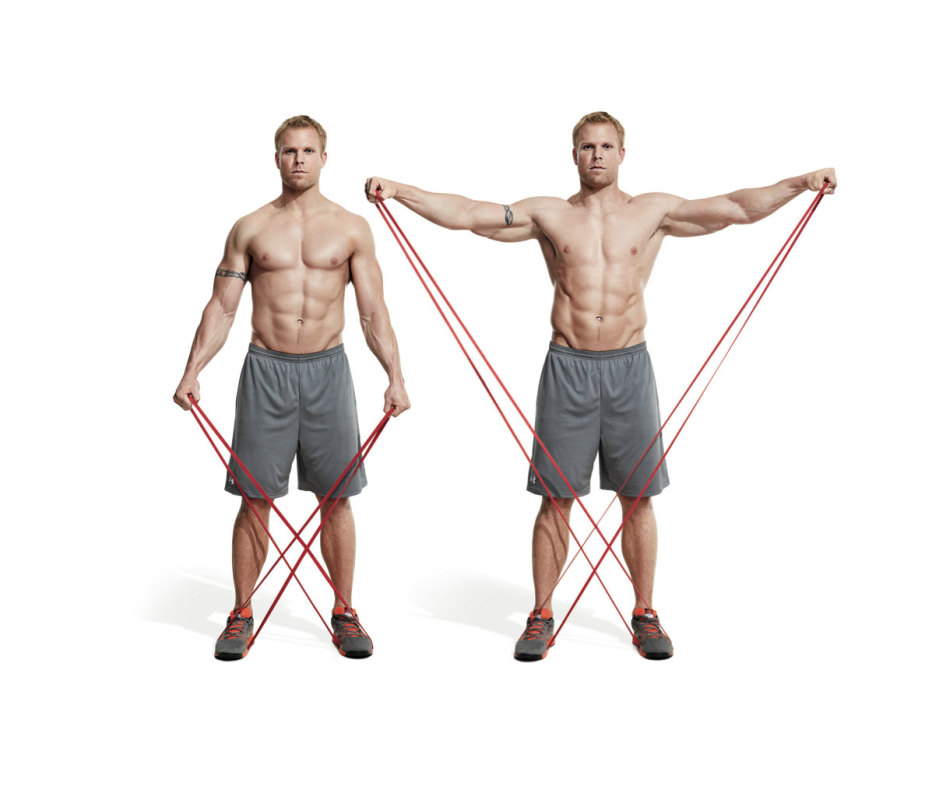
How to do it:
- Step on the free end of each band with the opposite foot so the bands form an X in front of your body.
- Raise your arms 90 degrees out to the sides until your upper arms are parallel to the floor.
28. Dive Bomber Pushup
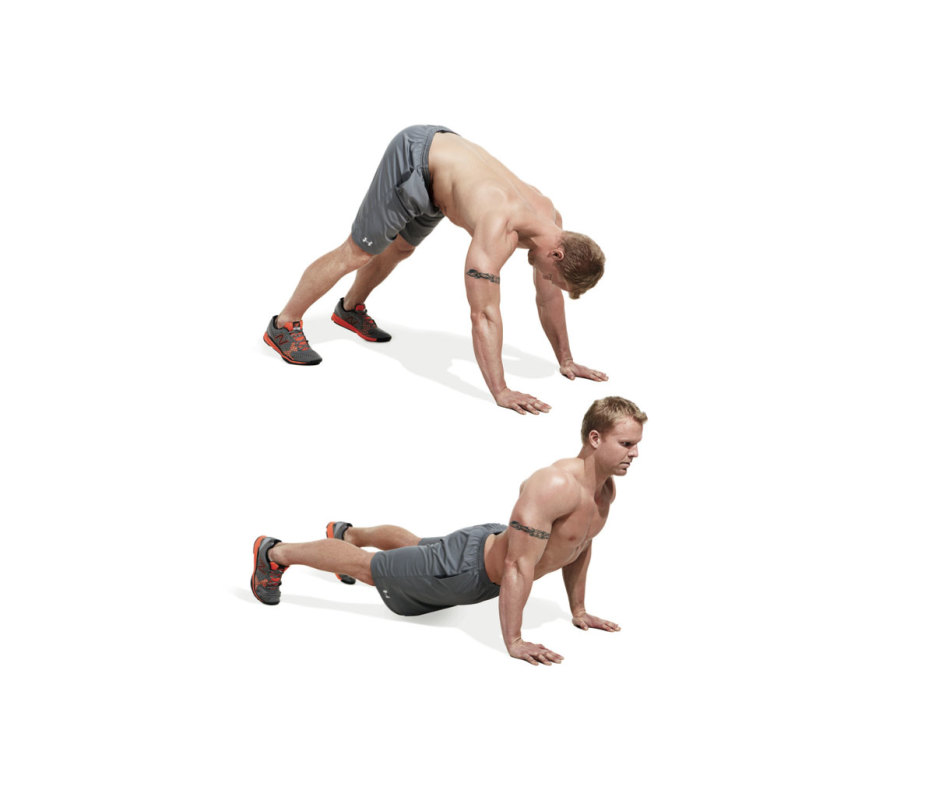
How to do it:
- Get into pushup position.
- Push your hands into the floor to drive your weight back so your hips rise into the air.
- Your back should be straight and your head behind your hands.
- Lower your body in an arcing motion so that your chest scoops downward and nearly scrapes the floor.
- Continue moving forward as you press your body up so your torso is vertical and your legs are straight and nearly on the floor. That’s one rep.
29. Seated Dumbbell Clean
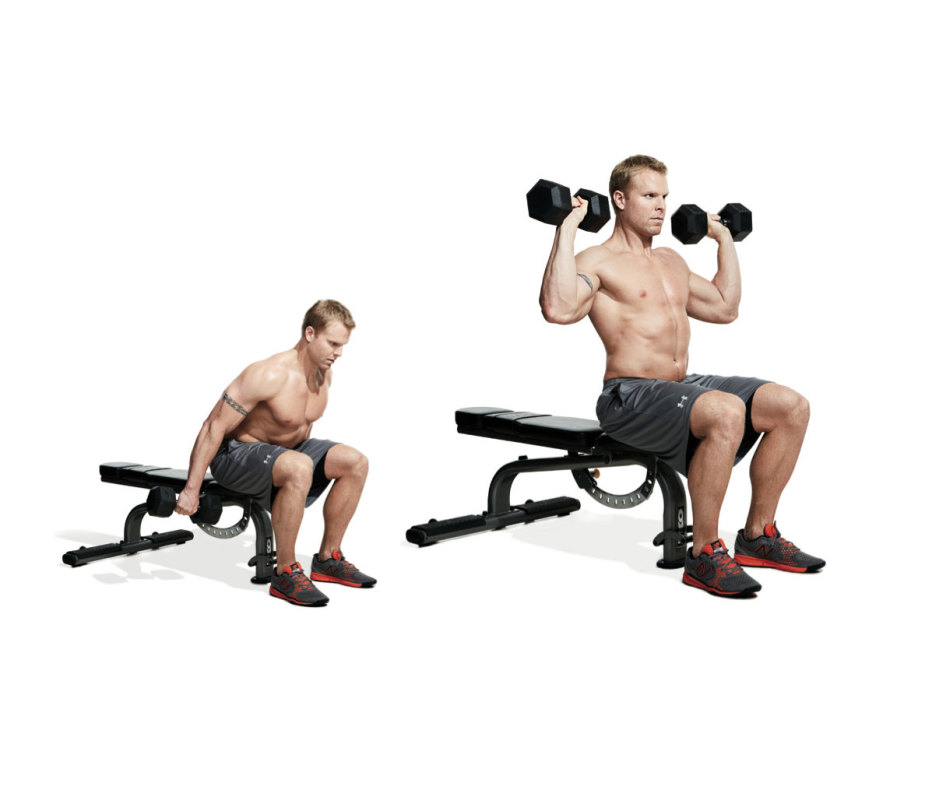
How to do it:
- Hold a dumbbell in each hand and sit on the edge of a bench.
- Keeping your lower back flat, lean forward.
- Explosively straighten your body and shrug the weights so your arms rise.
- Allow the momentum to flip your wrists so you catch the weights at shoulder level.
30. Standing Dumbbell Flye
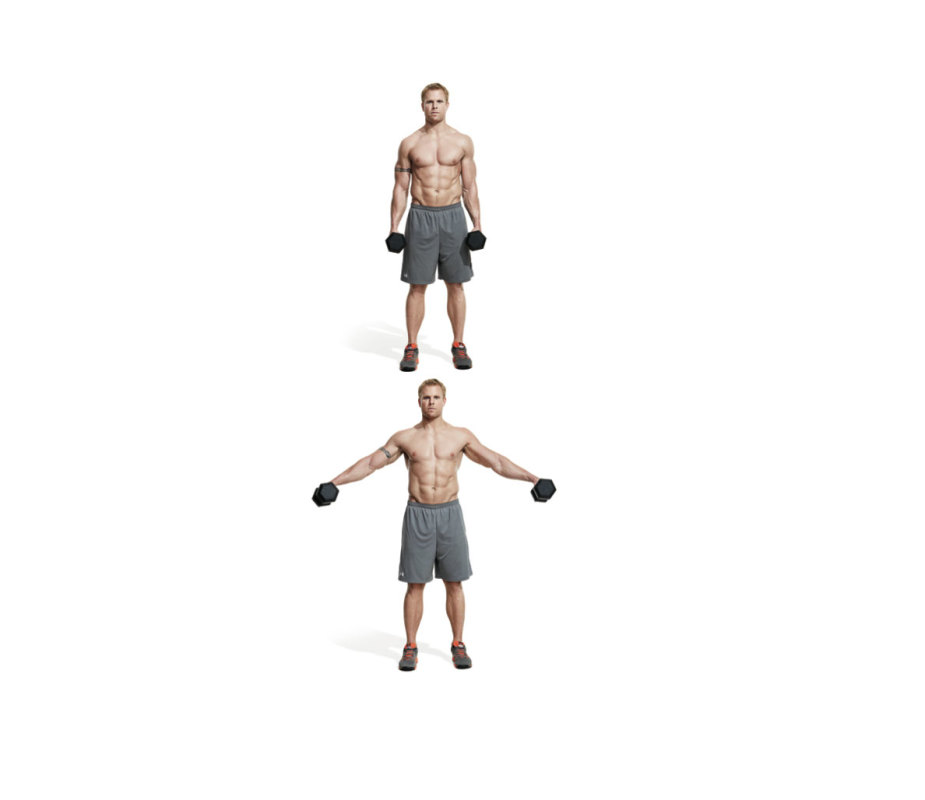
How to do it:
- Hold a dumbbell in each hand by your sides.
- Without shrugging, use your upper body to swing the weights up a few inches.
- Your arms and torso will form an upside down V shape.
- Think of it as a lateral raise with momentum but without full range of motion.
31. Four-in-One Dumbbell Curl
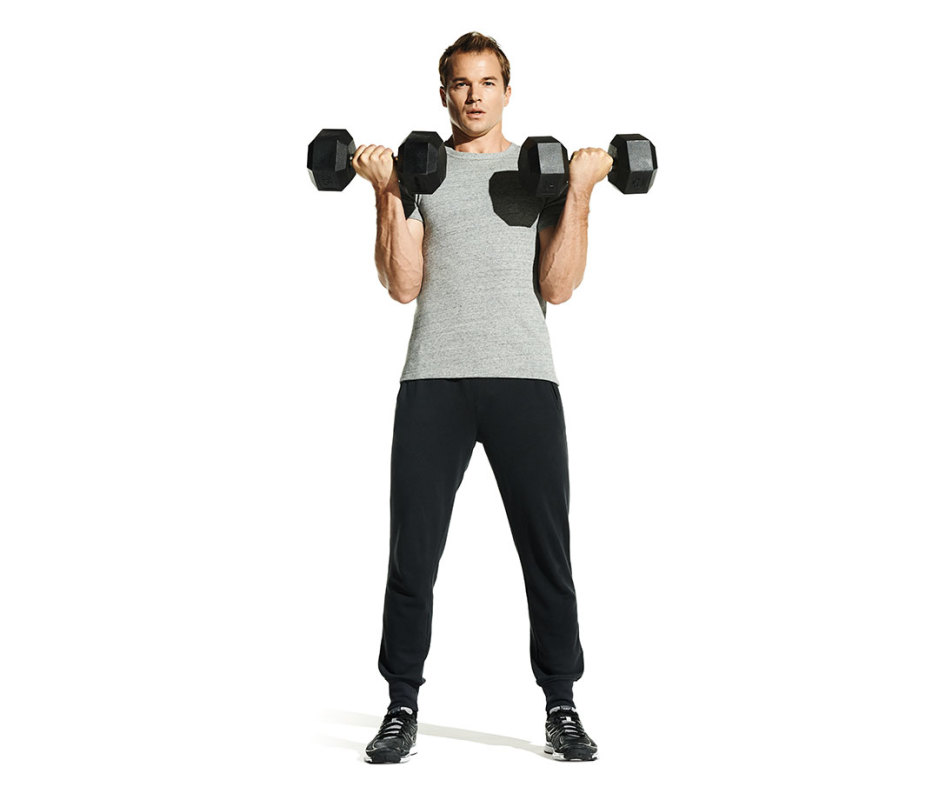
How to do it:
- Start with lighter dumbbells and curl 8 times.
- Next, curl halfway, pausing for a second just above belly button height at each of 8 reps.
- After, take the dumbbells up and descend just below pec height, again pausing for a second before returning for 8 reps.
- Finally, do 8 more full reps.
32. Renegade Row
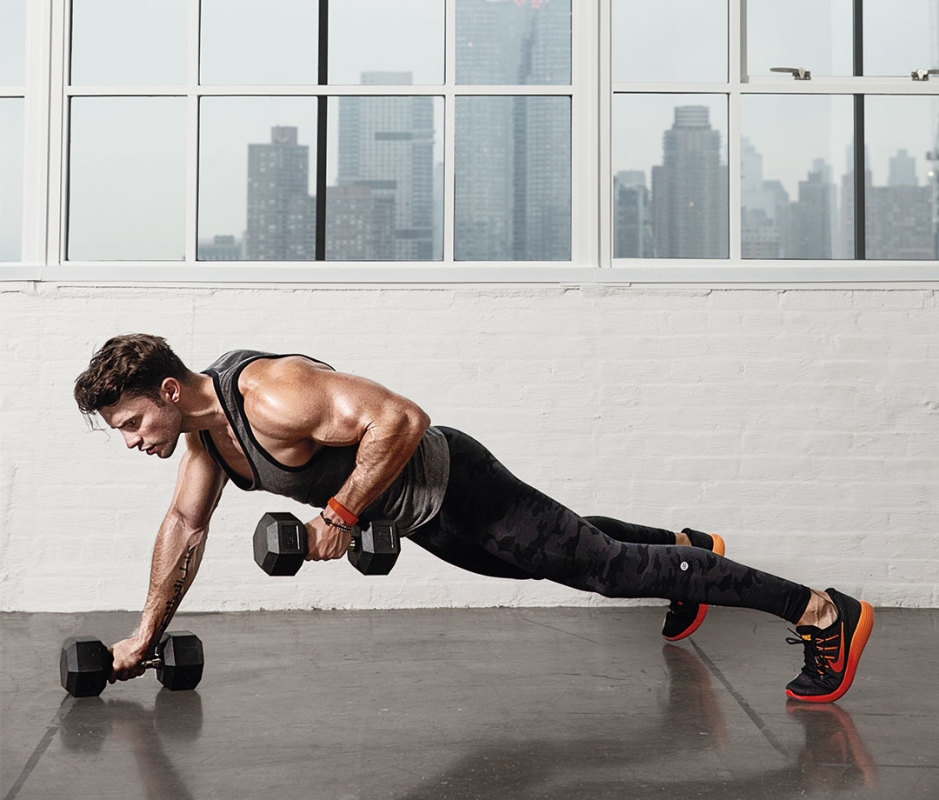
How to do it:
- Start in the top position of a pushup with your hands on dumbbells shoulder-width apart.
- Row one dumbbell toward the side of your body while balancing on the opposite hand and feet.
- Pause for one second at the top and return the weight slowly to the start position. Repeat on the other side.
33. Monkey Bars
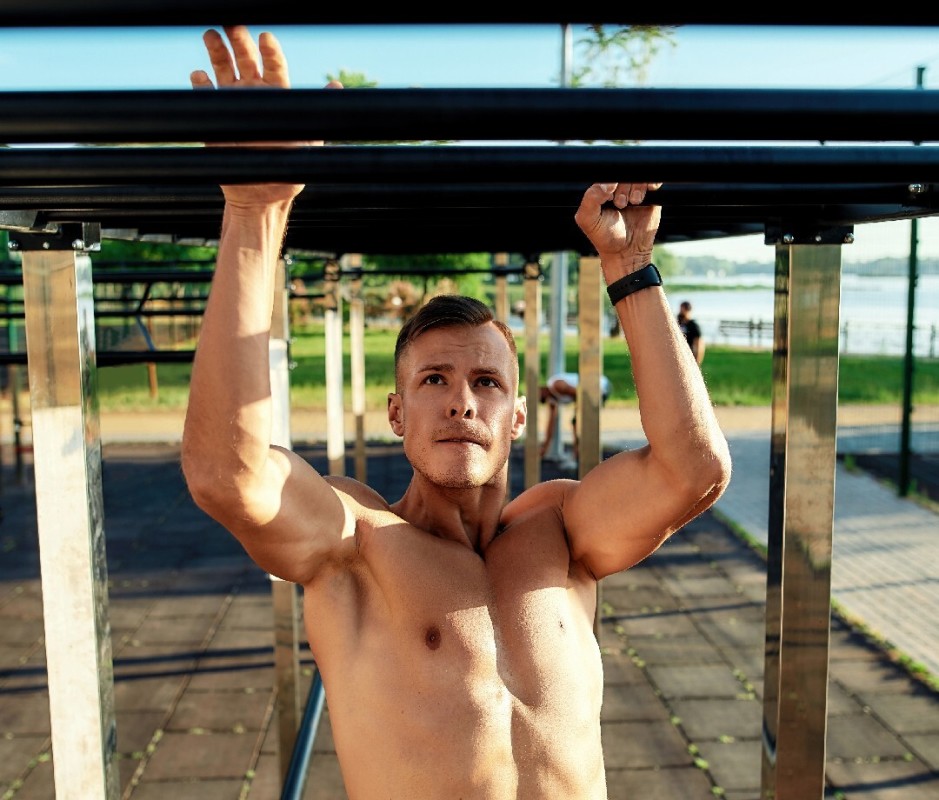
How to do it:
- This is best done on actual monkey bars in a park, but can be adapted in the gym depending on the bars available.
- Avoid the one-arm, every-other-bar swinging method.
- That’s the most monkey-like, but can strain the shoulders if done improperly.
- Instead, start with both hands on the bar, facing the bars.
- Move one forward, then the other.
- Or you can move laterally, starting by facing perpendicular to the bars, reaching from one side, then bringing your second hand over.
34. Farmer’s Carry
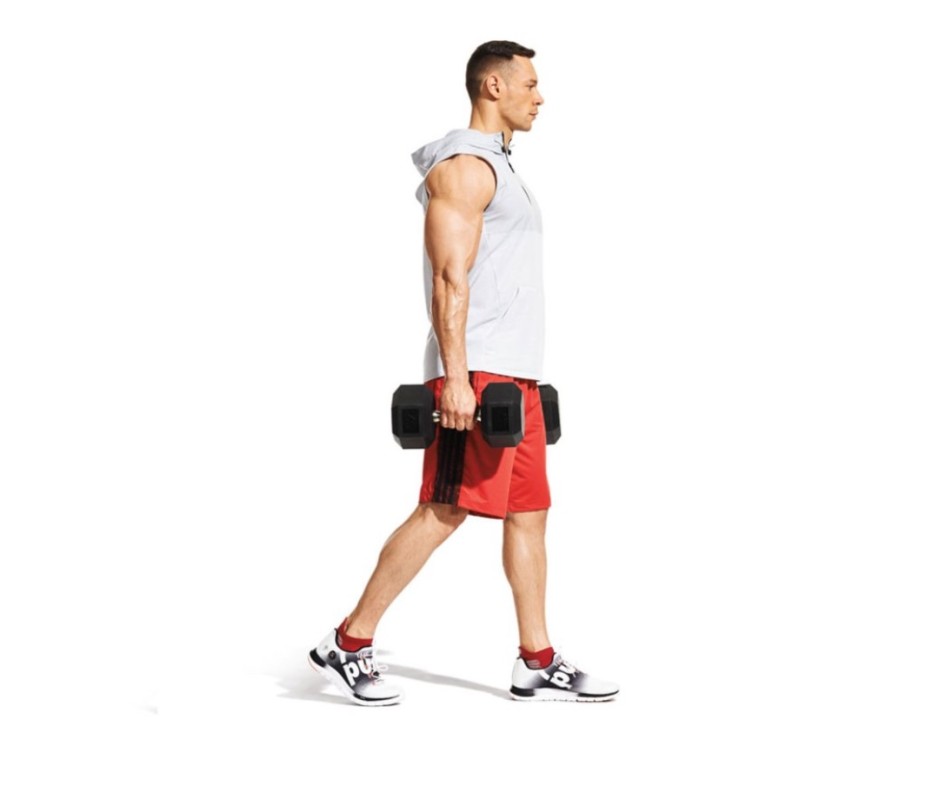
How to do it:
- Stand between a pair of dumbbells or kettlebells, as if they were suitcases.
- Squat at the hips—no bending at the back—and lift the weights.
- Start by walking a short distance—perhaps once or twice around the room—gradually working your way to longer distances or heavier weights.
35. Plyo Pushup
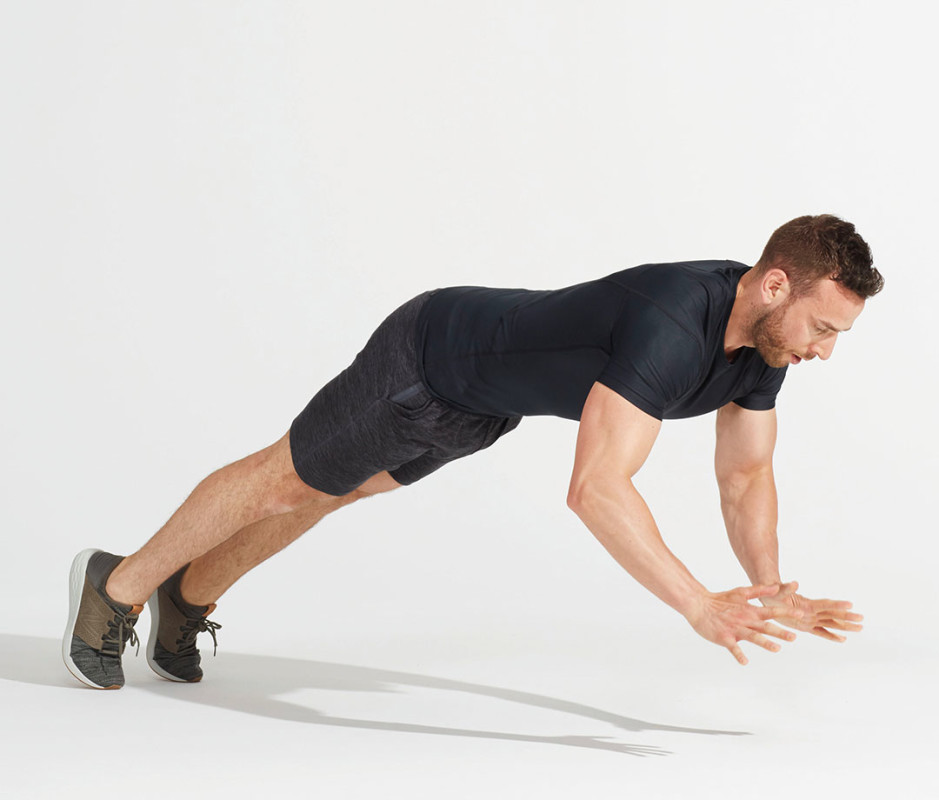
How to do it:
- Start in a high plank position with hands directly beneath shoulders, feet hip-width apart.
- Slowly lower yourself down, then explode up as hard as you can.
- The upward movement should take no longer than 1 second.
- By exploding on the upward movement, you hit the arms harder.
36. Inverted Bar Rows
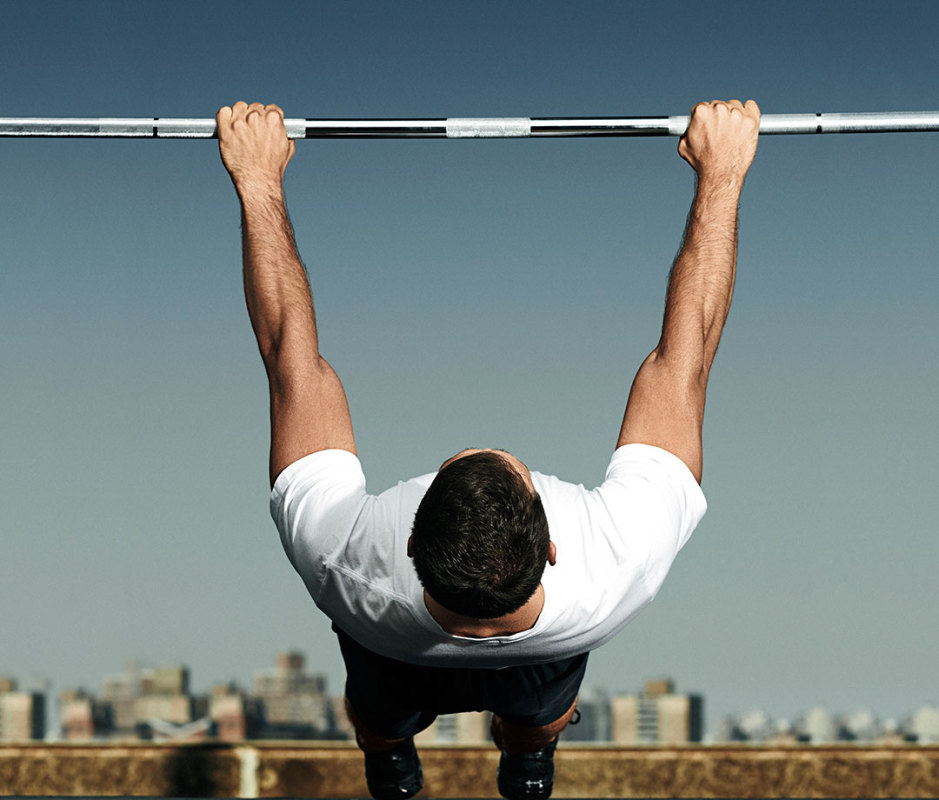
How to do it:
- Lie underneath a bar that’s several feet above you, such as in a squat rack.
- Hang underneath the bar with heels on the ground and arms fully extended.
- Pull your chest toward the bar.
- Pause at the top, then return to starting position.
37. High-to-Low Plank
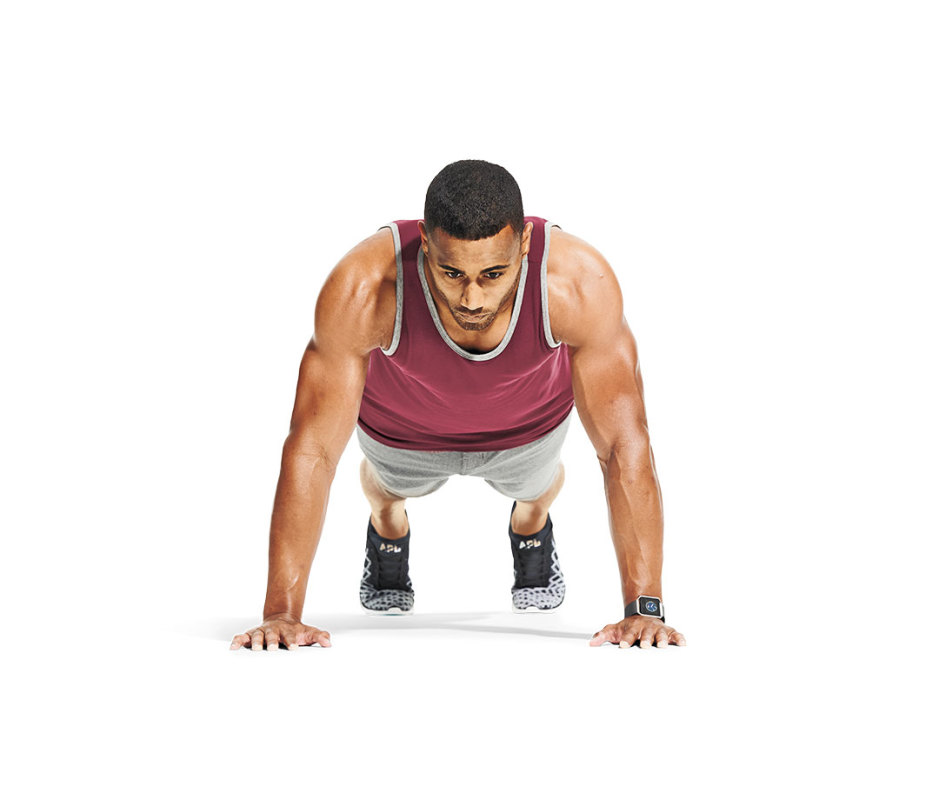
How to do it:
- Begin in a forearm plank position.
- Push from your triceps, placing your right hand on the ground and then your left hand, gradually rising to pushup position.
- Return to the forearm plank by placing your right forearm down, then your left.
38. Seated Wrist Curl
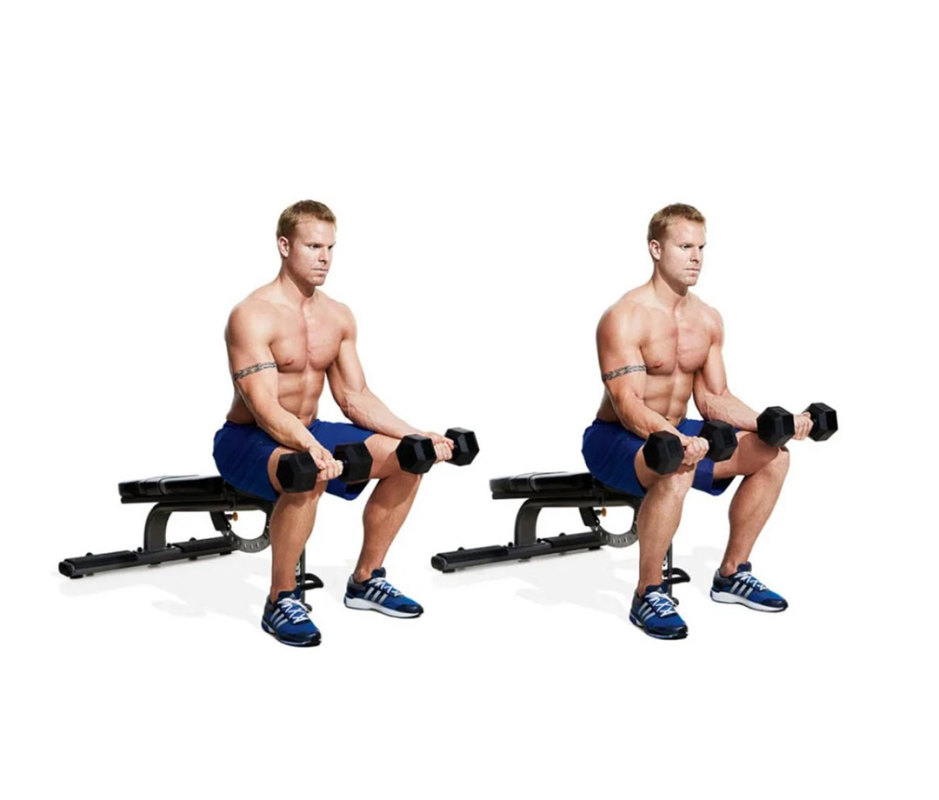
How to do it:
- Hold dumbbells in either hand and sit on a bench, allowing your elbow and forearm to rest on your thigh.
- Your hands should dangle off your knees, palms up, elbows bent at 90 degrees.
- With the dumbbells hanging down, curl your wrist so your palm faces your biceps.
- Lower slowly and repeat.
39. Towel Pullup and Chinup
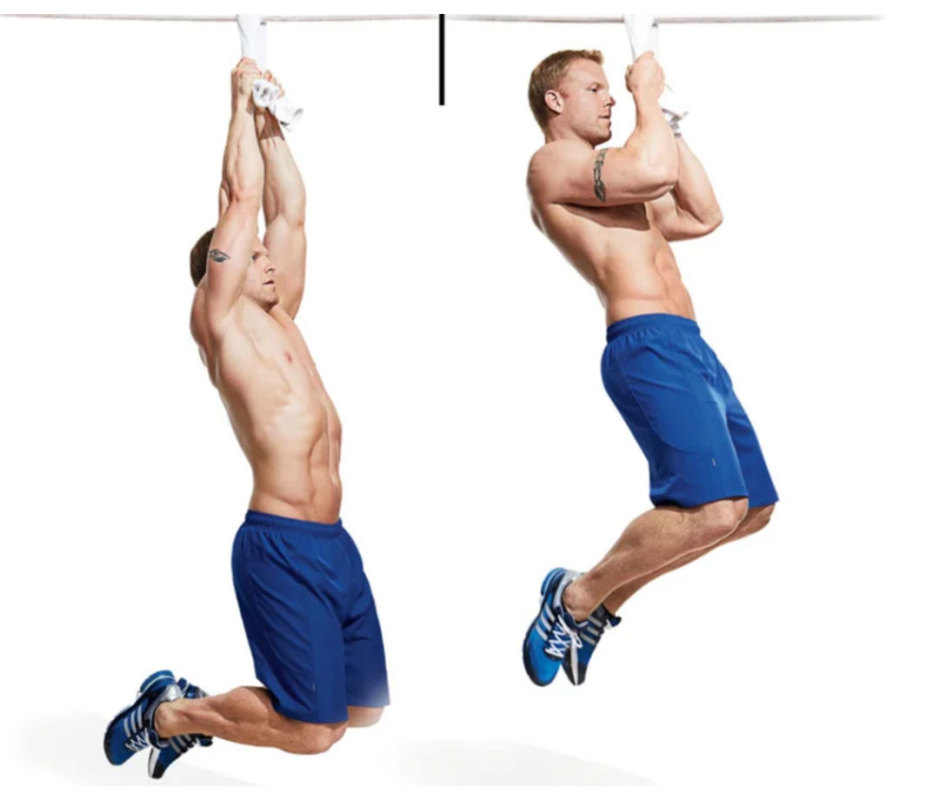
How to do it:
- Drape a towel over a pullup bar, grab hold of an end of the towel in each hand, and pull up.
- For chin ups, drape two gym towels over a pullup bar so both ends of the towels hang down.
- Perform your chin ups by gripping the towels rather than the bar.
- This challenges the forearms and improves grip strength.
40. Waiter’s Walk
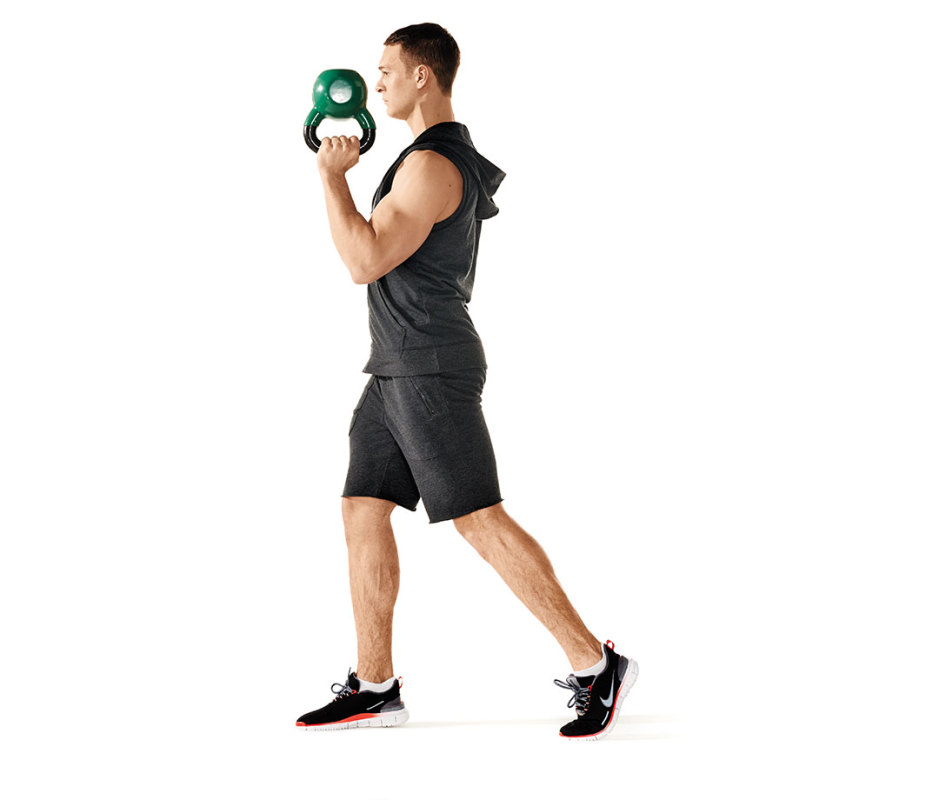
How to do it:
- Grab a kettlebell or dumbbell in one hand and hold it overhead or at face level.
- Keep your shoulder blades pulled down and back, and fire your glutes as you walk.
- Keep your wrists straight, as if you were waiting tables and holding a tray.
- Walk 10 yards out and 10 yards back.
- Switch hands and repeat.
41. Incline Dumbbell Row
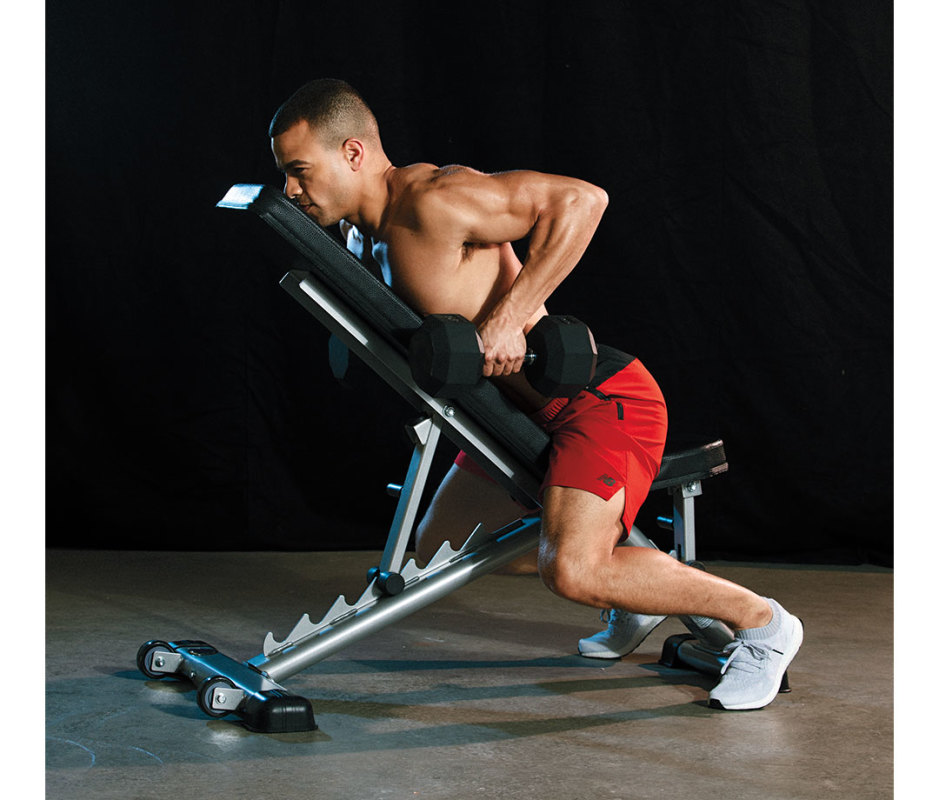
How to do it:
- Lie chest down on an adjustable bench set at a comfortable angle between 30 and 45 degrees.
- With a dumbbell in each hand, bring your shoulder blades back and together as you row the weights to your sides.
- Return to starting position.
42. Prone-grip Pullup
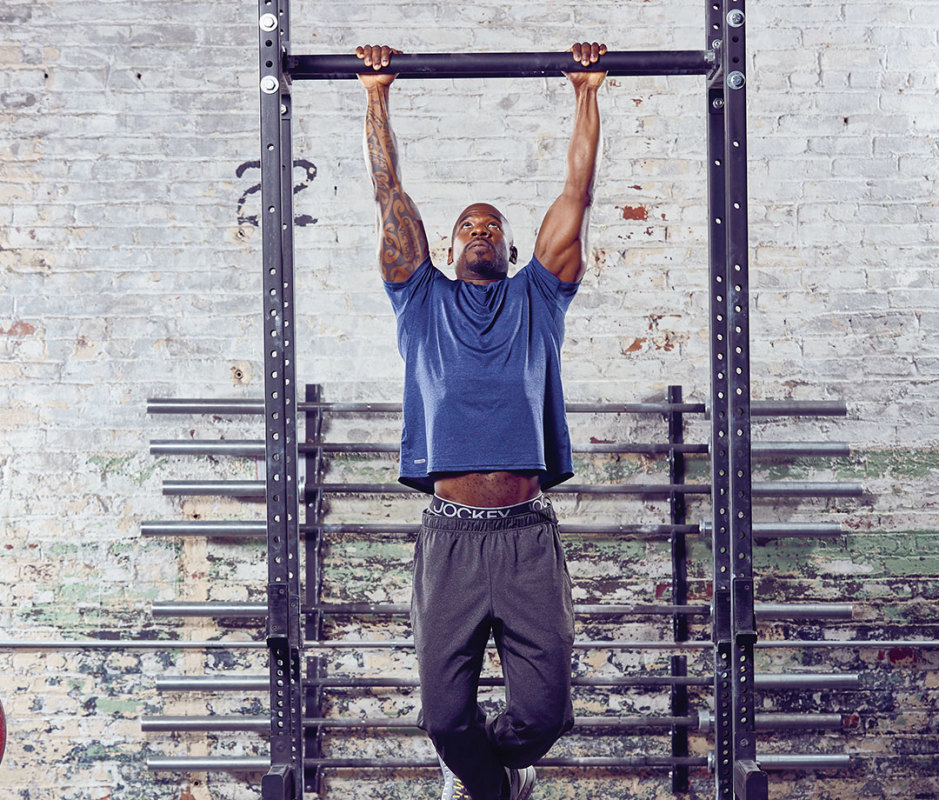
How to do it:
- Grab the bar with an overhand grip.
- Hanging from the bar, pull your shoulder blades down and back to lift your body and build momentum.
- Finish by pulling up with your arms.
43. Upright Row
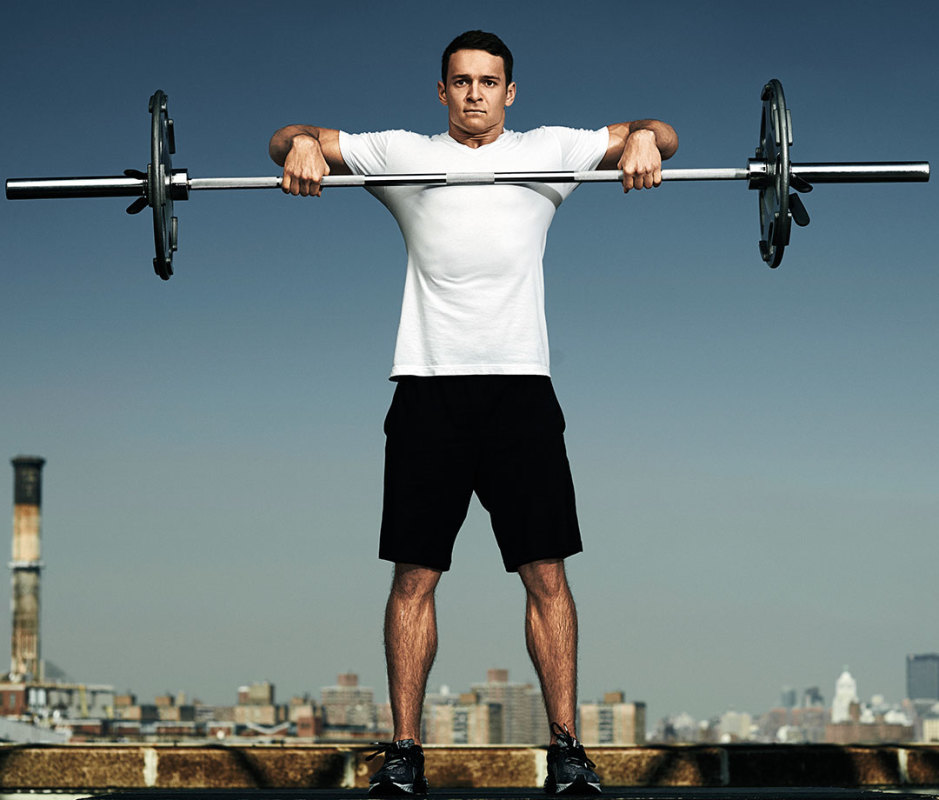
How to do it:
- Hold the bar with hands slightly farther outside shoulder width than for the overhead press.
- Squeeze your shoulder blades together and pull the bar to chest height.
- Your elbows should be bent 90 degrees in the top position and your upper arms should be horizontal.
- To use dumbbells, stand with feet hip-width apart, holding weights palms down in front of your body.
- While keeping shoulder blades back and chest up, raise dumbbells vertically, lifting elbows to the ceiling.
- Return to starting position.
44. Resistance Band Push-Pull
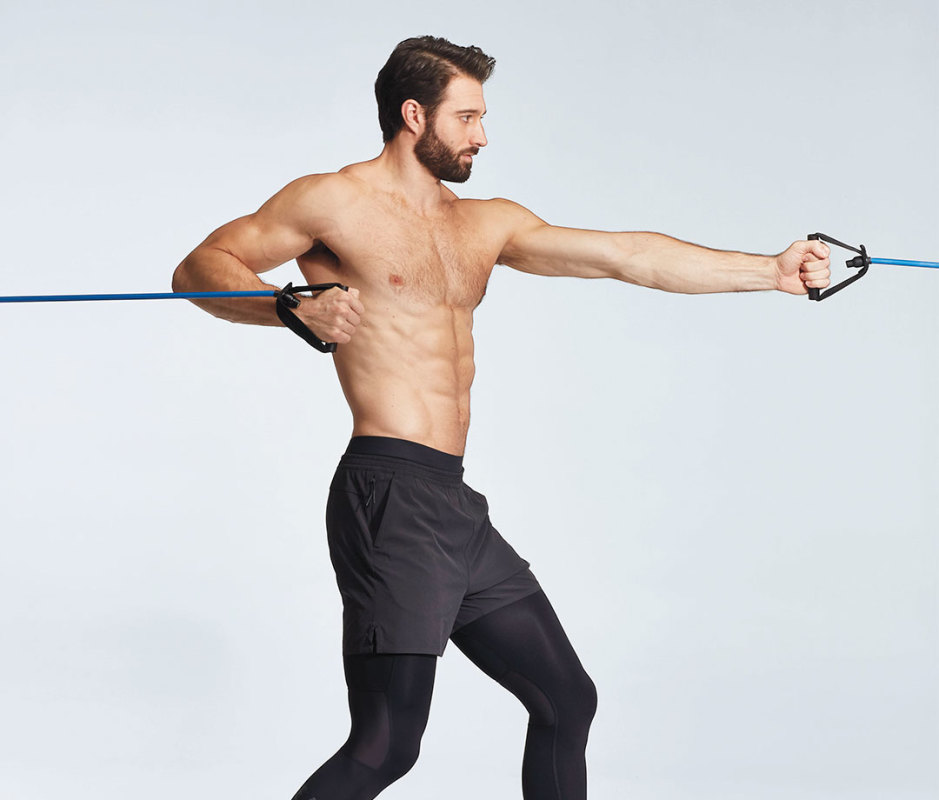
How to do it:
- Anchor resistance bands on either side of you at chest height.
- Grab a handle in each hand, pivot to the left to face anchor, left arm outstretched, right arm bent, and knees soft to start.
- Without rotating, simultaneously pull left hand back and press right hand forward, and reverse for one rep.
- Complete all reps on the left, then switch sides.
45. Tate Press
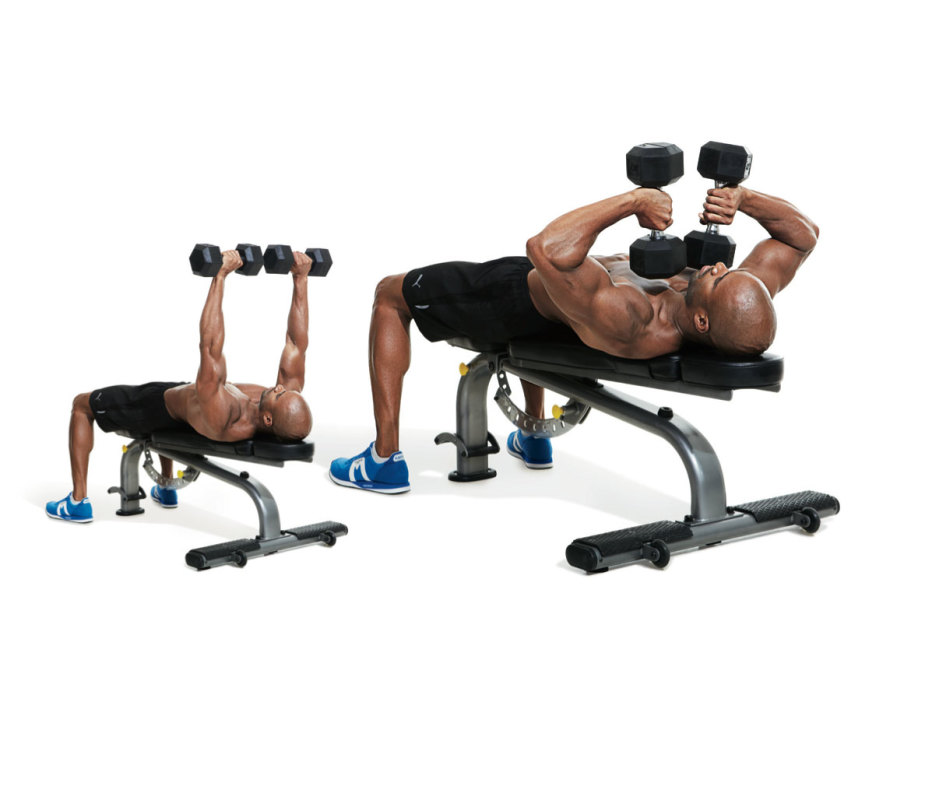
How to do it:
- Lie back on a bench or surface with dumbbells in each hand, arms extended over your chest and palms facing your feet.
- Point your elbows out and bend them to lower the weights almost to your chest, so they make L shapes.
- Extend your elbows.
46. Suspension Trainer Pushup
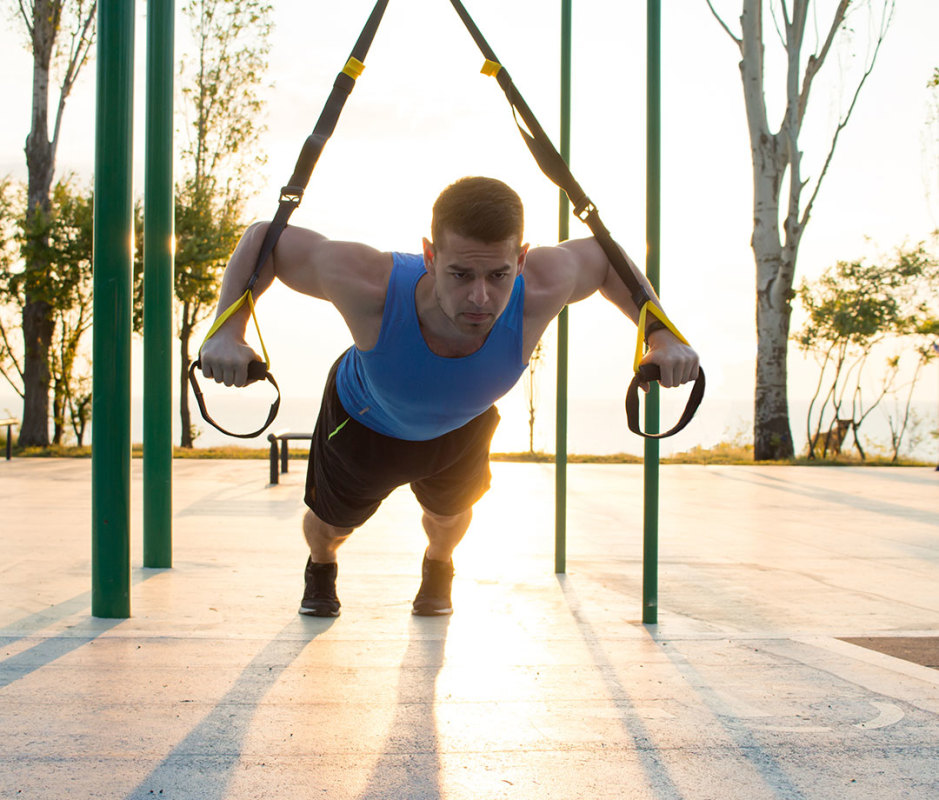
How to do it:
- With your feet on the ground, grab the suspension trainer handles and assume pushup position.
- Lower your body and push up.
47. One-arm Row
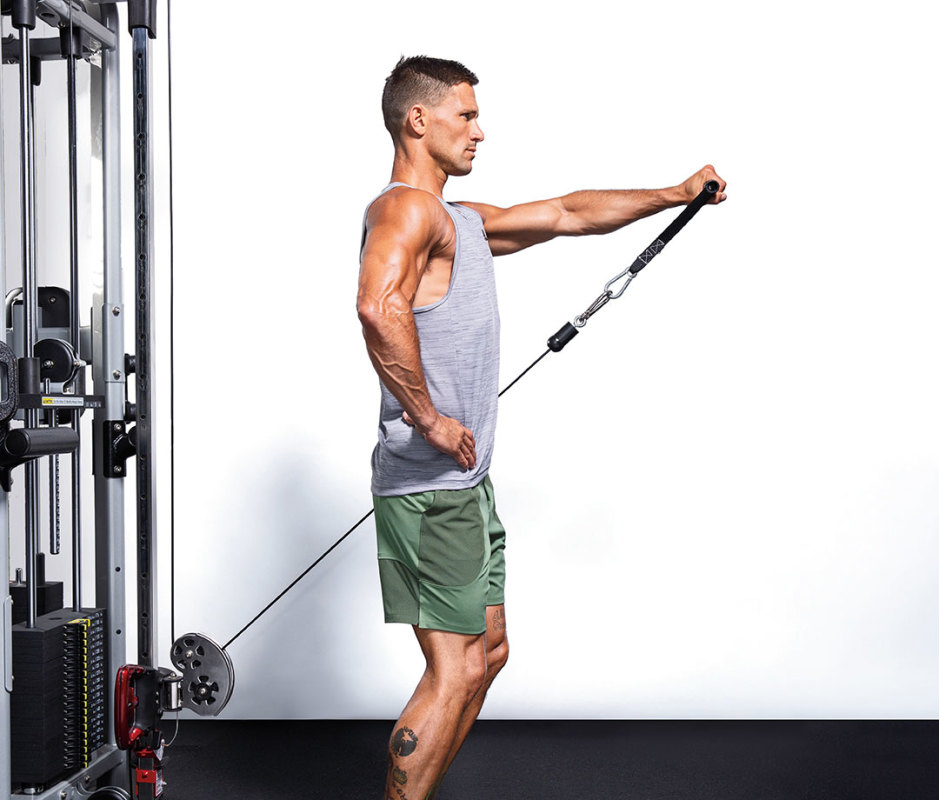
How to do it:
- Face away from the pulley, with D-handle in left hand, fist close to your body and down, right hand 2 on right hip.
- With soft knees and a tight core, keeping arm fully extended, raise left arm until fist is in line with shoulder.
- Hold for 1 second, then lower for 1 rep. Complete all reps on the right side, then switch.
48. Overhead Cable Triceps Extension
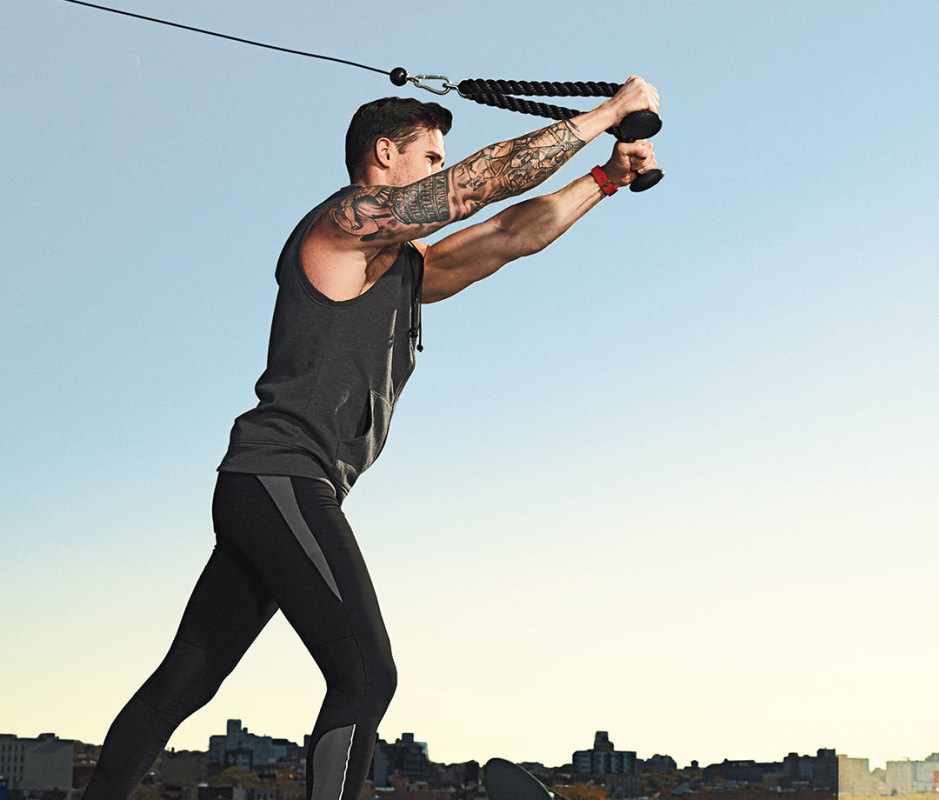
How to do it:
- Attach a rope handle to the top pulley of a cable station.
- Face away from the station and step forward, raising your arms overhead and bending your torso until you feel a stretch in your triceps.
- Hold the position and extend your elbows.
49. Side Curl With Band
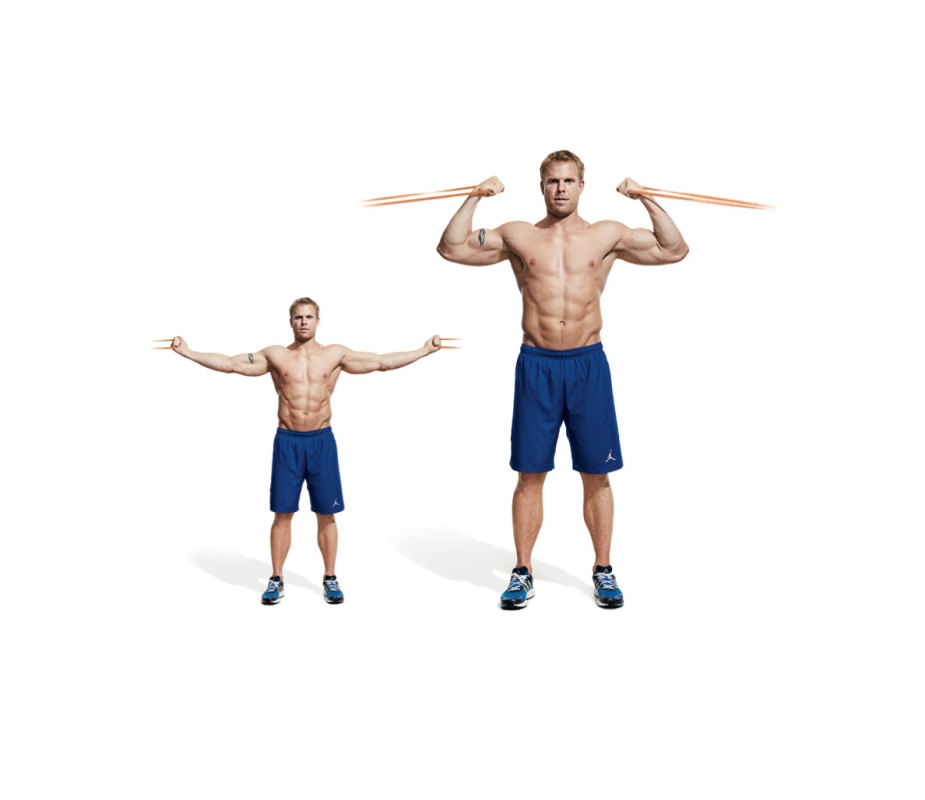
How to do it:
- Attach two bands to sturdy objects at shoulder height that face each other.
- Stand between them and hold an end in each hand. Raise your arms out 90 degrees with elbows extended—you should still feel some tension on the band in this starting position.
- Curl the bands toward your ears and hold the contracted position for two seconds.
50. Single-arm Row to Press
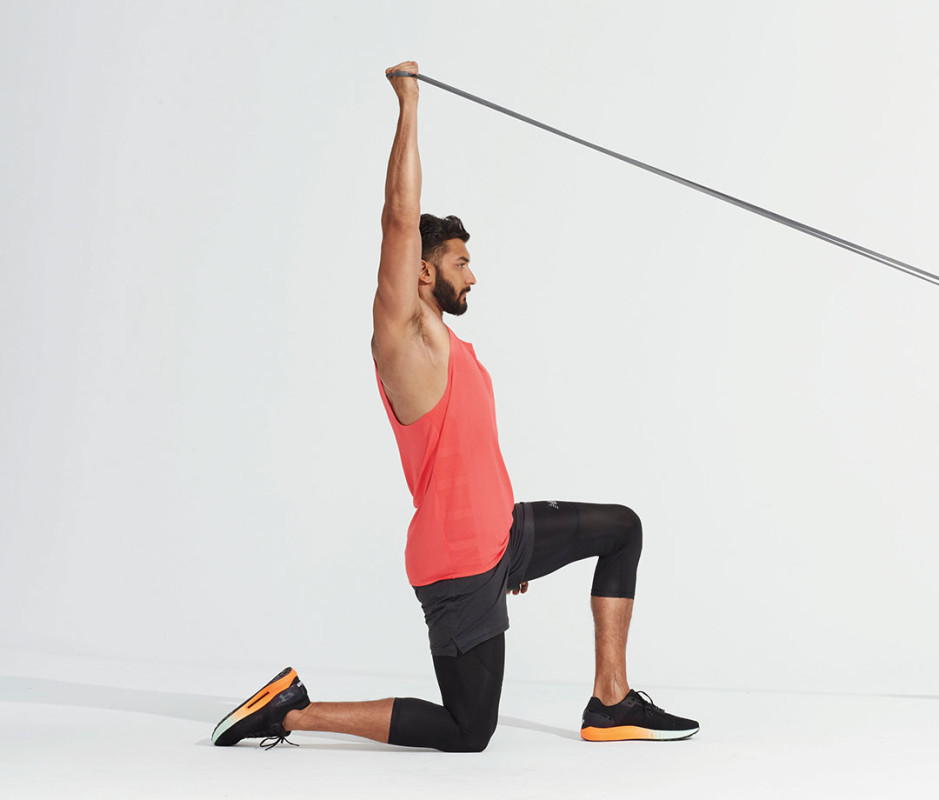
How to do it:
- Loop a resistance band to a rig about 2 feet off floor.
- Hold end of band with right hand, arm extended straight, half-kneeling with right knee on floor.
- Row band back, then press arm up and overhead.
- Reverse to start for 1 rep.
- Do all reps on the right side, then switch sides.
Tips For Maximizing Arm Exercises
Utilize progressive overload
Avoid a fitness plateau by intensifying the challenge through progressive overload. Lift more over time—by adding weight, sets, or reps to increase the volume. This added demand when you work out arms will spur greater gains in muscle size, strength, and endurance.
Play with time under tension
The longer a muscle group is strained, the faster, more effectively muscle fibers grow (aka hypertrophy). Eccentric training puts the emphasis on the lengthening phase of an exercise.
Blast your biceps by doing a 4,0,1,0 tempo. Lower the weight for 4 seconds, pause for half a beat, take 1 second on the way up, then pause again briefly before repeating.
































